These grants are selected by the ATA® Research Committee, approved by the ATA Board of Directors and awarded by the American Thyroid Association. Administrative management, marketing, financial and grant tracking support organized and provided by the ATA Headquarters’ office.
Research awardees are honored at the ATA Annual Meeting and on the ATA website with additional presentations and recognition on the ATA annual meeting program.
2024 ATA Grants
 Alexandria McDow, MD, FACS – Assistant Professor of Surgery, Trustees of Indiana University
Alexandria McDow, MD, FACS – Assistant Professor of Surgery, Trustees of Indiana University
Randomized Controlled Trial of Preoperative Corticosteroids in Autoimmune Thyroid Disease
Dr. McDow’s research focuses on endocrine surgery, with particular interest in surgical decision-making in patients with benign and malignant thyroid disease.
Dr. Alexandria McDow is a native of Kentucky, receiving her M.D. from University of Kentucky College of Medicine. She did her residency in general surgery at Southern Illinois University and completed a fellowship in endocrine surgery at University of Wisconsin School of Medicine and Public Health. She is an American Board of Surgery certified general surgeon and fellowship trained endocrine surgeon. She joined Indiana University School of Medicine in 2019 as an Assistant Professor of Surgery in the Division of Surgical Oncology within the Department of Surgery. Her clinical focus specializes in the treatment of benign and malignant diseases of the thyroid, parathyroid, and adrenal glands. Her research focuses on endocrine surgery, with particular interest in surgical decision-making in patients with benign and malignant thyroid disease. She is passionate about surgical education and serves as the Associate Director of the Indiana University General Surgery Residency Program. Dr. McDow is a member of the American Thyroid Association, American Association of Endocrine Surgeons, and a Fellow of the American College of Surgeons. She was also awarded membership in Alpha Omega Alpha and the Gold Humanism Honor Society.
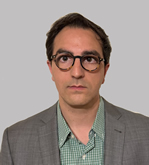 Federico Salas Lucia, PhD, Staff Scientist, The University of Chicago
Federico Salas Lucia, PhD, Staff Scientist, The University of Chicago
Thyroid Hormones Regulate Fetal Neurogenesis
Dr. Salas Lucia’s research focuses on studying TH transport, metabolism, and action in the context of brain development and function and translating this knowledge into treatment options for patients with hypothyroidism or inherited thyroid diseases.
Federico Salas-Lucia is a translational biologist working as a staff scientist in the Department of Medicine at the University of Chicago. His research centers on understanding thyroid hormone (TH) transport, metabolism, and action in the context of brain development and function and translating this knowledge into treatment options for patients with hypothyroidism or inherited thyroid diseases. His interest in this area was sparked during his PhD, where he delved into the pathophysiology of congenital hypothyroidism, particularly the brain’s vulnerability to TH deficiency during the breastfeeding period. Building on this foundation, he has explored new molecular and cellular mechanisms underlying the ‘local’ customization of TH signaling in the brain. He has discovered a new pathway for TH to enter the neurons residing in the brain, revealing that TH can enter neurons hidden in a cellular shuttle (endosomes) that acts akin to a Trojan horse, protecting TH from degradation. He also established a cellular model–based on cerebral organoids–for studying the pathophysiology of the MCT8-deficiency. Using these MCT8-deficient cerebral organoids, he confirmed a dramatic reduction in TH transport into fetal neural cells, leading to abnormalities in early neurogenesis (the process by which new neurons are formed in the brain). He is also often involved in basic studies focused on TH economy and in studies on human families with inherited thyroid conditions.
2023 ATA Grants
 Michelle Rengarajan, MD, PhD – Massachusetts General Hospital, Boston, MA
Michelle Rengarajan, MD, PhD – Massachusetts General Hospital, Boston, MA
Highly multiplexed imaging of thyrocyte-immune interactions in health and disease
Dr. Michelle Rengarajan is a physician-scientist and attending endocrinologist at Massachusetts General Hospital (MGH) and Harvard Medical School. After undergraduate studies in biology at the University of Chicago, she completed her M.D. and Ph.D. in the Medical Scientist Training Program at Stanford University. Her PhD thesis focused on how cytoskeletal dynamics modulate interactions between host cells and intracellular bacteria. She identified a new mechanism of bacterial invasion and characterized non-genetic heterogeneity in susceptibility of host cells to infection. Subsequently, Dr. Rengarajan completed an Internal Medicine residency at Brigham and Women’s Hospital and a fellowship in Endocrinology, Diabetes, and Metabolism at MGH, during which she pursued post-doctoral training in systems immunology with Andy Luster and Chloe Villani. During her training, she has developed clinical and scientific expertise in both drug-induced and spontaneous autoimmune endocrinopathies, particularly autoimmune thyroid disease. Dr. Rengarajan is particularly focused on bringing cutting-edge single cell multiomics and imaging technology to further our understanding of thyroid disease. In her current work, she uses single cell multi-omics in human cells and patient samples to dissect how thyrocytes interact with infiltrating immune cells to preserve hormone production, even in the face of T-cell mediated tissue damage. This work has important implications for how human tissue can maintain self-tolerance and prevent autoimmunity and, conversely, implications for how to induce immune-mediated destruction of thyroid tumors. Dr. Rengarajan hold a current K08 award from the NIDDK as well as a Doris Duke Physician-Scientist Fellowship.

James Wu, MD – University of California Los Angeles, Los Angeles, CA
Mapping patient decision-making in thyroid cancer: improving decision outcomes through ethnographic decision modeling
Dr. James Wu is an endocrine surgeon and assistant professor at the UCLA David Geffen School of Medicine. He earned his medical degree from the University of Colorado, followed by general surgery training at UCLA. He completed the Head and Neck Oncologic Surgery Fellowship at Memorial Sloan Kettering Cancer Center. He is devoted to the care of patients of thyroid cancer.
Through his research, Dr. Wu hopes to improve the delivery of health services to thyroid cancer patients. His body of work includes several cost-effectiveness analysis, population-based studies, and clinical trials published in Thyroid, Journal of Clinical Endocrinology and Metabolism, JAMA Surgery, and other high impact peer-reviewed journals. His current focus is on elucidating decision-making pathways in thyroid cancer and supporting patients in the decision-making process.
Dr. Wu is a committed member of the American Thyroid Association, American Association of Endocrine Surgeons, and serves on the editorial board of Video Endocrinology. He also serves as the UCLA associate director of surgical education and is an endocrine surgery contributor to Behind the Knife surgery podcast. Most importantly, he is a husband to his wife Kristine and proud father of Owen and Lucas Wu.
2022 ATA Grants
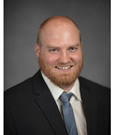 Thomas Bastian, PhD – Assistant Professor, University of Minnesota, Minneapolis, MN, United States
Thomas Bastian, PhD – Assistant Professor, University of Minnesota, Minneapolis, MN, United States
Basic – Thyroid Hormone Development and the Brain
Adaptive Coupling of Iron & Thyroid Hormone Metabolism in Neurodevelopment
Dr. Bastian’s research focuses on metabolic interactions among hormones (e.g., thyroid hormone) and micronutrients (e.g., iron) that are directly involved in cellular energy metabolism to understand how these interactions contribute to proper brain development.
Dr. Thomas Bastian is an Assistant Professor in the Department of Pediatrics Neonatology Division at the University of Minnesota. He received his PhD in Integrated Biosciences from the University of Minnesota-Duluth in 2013 and did his postdoctoral training under the mentorship of Drs. Lorene Lanier and Michael Georgieff at the University of Minnesota studying the role of mitochondrial dysfunction in driving the long-term neurobehavioral deficits of fetal-neonatal iron deficiency. Dr. Bastian’s current research focuses on uncovering the cellular/molecular mechanisms by which specific nutrients regulate brain development. This line of research is also clinically relevant as early-life nutrient deficiencies are common, cause abnormal neurodevelopment, and often coexist in humans infants. The Bastian lab has a particular interest in metabolic interactions among micronutrients (e.g., iron, iodine, copper, and zinc) and metabolic regulators (e.g., thyroid hormone), which are directly involved in cellular energy metabolism in the developing brain. Dr. Bastian’s group uses primary neuron and glia culture models and in vivo transgenic approaches to manipulate cellular levels of micronutrients (and other metabolic pathways) in developing brain cells, allowing study of interactions between cellular metabolic processes that are critical for neurodevelopment. The overall goal is to understand how these interactions contribute to proper brain development in order to inform better approaches for clinical management of coexisting nutrient deficiencies during the fetal and neonatal period.
 Martyn Bullock, BSc (Hons), PhD – Dr, Kolling Institute, Sydney, NSW, Australia
Martyn Bullock, BSc (Hons), PhD – Dr, Kolling Institute, Sydney, NSW, Australia
Basic – Autoimmunity
Immunoregulatory Functions of Foxe1 in the Adult Mouse Thyroid
Dr. Bullock’s research focuses on understanding the transcription factor networks that govern thyroid gland development, and how the hijacking of developmental genes contributes to the pathogenesis of adult thyroid disease.
Dr. Martyn Bullock started his scientific career in Wales, where he completed his PhD investigating the role FOXE1 plays in thyroid gland development under the supervision of Prof. Marian Ludgate at Cardiff University. After graduating, Martyn moved to Australia to undertake his postdoctoral work in the laboratory of Prof. Roderick Clifton-Bligh and Prof. Bruce Robinson at the Kolling Institute, University of Sydney, where he studied transcriptional regulation of the TERT in thyroid cancer. He has several first author publications in journals like Thyroid and JCEM and has received multiple awards and fellowships, including a Young Investigator Award from the Asia & Oceania Thyroid Association. His group uses in vivo models and genomic techniques to study the role of transcription factors in regulating thyroid gland morphogenesis, and how the hijacking of developmental transcriptional networks contributes to the pathogenesis of thyroid disease. Recently, he has become interested in how the influence of these factors extends beyond the thyrocyte to modulation of the surrounding immune microenvironment, the subject of this proposal. His career goal is to translate these mechanistic discoveries into novel strategies for preventing or treating autoimmune thyroid diseases.
2021 ATA Grants
 James Cuffe, PhD – Brisbane, Queensland, Australia
James Cuffe, PhD – Brisbane, Queensland, Australia
Thyroid and Pregnancy
Do thyroid antibodies disrupt placental arterial remodeling in pregnancy?
Dr. Cuffe’s research focuses focuses on understanding why women develop complications of pregnancy and developing strategies to ensure a healthy pregnancy.
Dr James Cuffe has a PhD in fetal physiology from the University of Queensland and 13 years of experience using clinically relevant animal models of perturbed pregnancy. He has recently established his own independent research lab and has a tenure track position. He is an emerging leader in understanding the pathological processes that contribute to common pregnancy disorders and offspring disease. He has produced 56 publications since his first in 2011 with 1010 citations (Scopus, 27/4/2021). He has been invited to present findings from these papers at numerous scientific meetings in multiple countries. While Dr Cuffe has been involved in several clinical studies, his research expertise lies strongly in using preclinical animal models that follow the progression of disease in humans. Dr Cuffe has expertise in all methodologies to be conducted in this project with many of these techniques described in detail in his publications. These include assessment of placental vascular formation and confirmation of proposed biochemical and molecular mechanisms. He has generated all the preliminary data for this project including clinical evidence demonstrating the high rates of pregnancy disorders in women with treated hypothyroidism and the link between thyroid antibodies and poor pregnancy outcomes. He has established two different rat models of hypothyroidism in pregnancy and demonstrated that hypothyroidism leads to placental vascular dysfunction. His newest rat model of autoimmune thyroiditis will be used in this study.
James Cuffe Research Award Acceptance Video
 Randy Stout, PhD – Assistant Professor, Old Westbury, NY, United States
Randy Stout, PhD – Assistant Professor, Old Westbury, NY, United States
Thyroid Hormone Development and the Brain
Single-cell optical detection of T3 availability
Dr. Stout’s research focuses on learning how thyroid hormone is moved between cells in the brain in order to support neural cell function and allow healthy cognition and memory storage/recall.
Randy F. Stout is an assistant professor leading a research laboratory at the New York Institute of Technology College of Osteopathic Medicine in New York. NYITCOM is a medical school that trains physicians for all specialties and family practice in the US. Dr. Stout holds a PhD in Neurobiology from the University of Alabama, Birmingham and a bachelor’s degree in Biology from Cornell University. His scientific training and current research are on how brain cells interact and distribute chemical substrates through neural tissue to support healthy brain function. Specifically, his current research and past publications are focused on astrocytes and the gap junction that are required to connect astrocytes into a network that is critical for proper neuron function (cognition, learning, memory, and behavior). Dr. Stout has developed and published several genetic tools and techniques for microscopy-based research (optogenetic transgene tools) to understand how chemicals are processed and moved between the cells that form brain tissue. The brain handles thyroid hormone differently than other tissues and Dr. Stout has been researching the role for astrocytes in controlling thyroid hormone supply to neural cells since he started his own lab at NYITCOM in 2017. He has recently overseen NYITCOM’s acquisition of the most advanced microscopy systems currently available and he is eager to put the new equipment to use for a better understanding of how we can improve therapeutic delivery of thyroid hormone at the levels needed by the brain and other organs affected by hypothyroid disease.
Randy Stout Research Award Acceptance Video
2020 ATA Grants
 Melissa Lechner, MD, PhD – University of California, Los Angeles, California
Melissa Lechner, MD, PhD – University of California, Los Angeles, California
Role of Recent Thymic T Cells in Immune Checkpoint Inhibitor Thyroiditis
Dr. Lechner is a physician scientist in endocrinology at the University of California Los Angeles. After undergraduate studies at the University of California Berkeley in public health, graduating summa cum laude, she completed her M.D./Ph.D. in the combined joint USC Keck School of Medicine/Cal Tech Medical Scientist Training Program. She then did a combined residency in internal medicine and pediatrics at Brigham and Women’s Hospital and the Boston Combined Residency in Pediatrics at the Harvard School of Medicine. In 2018, Dr. Lechner joined UCLA as a clinical fellow in endocrinology and pursued advanced post-doctoral research training with a focus on endocrine autoimmunity. She will continue as an Assistant Professor at UCLA, studying the emerging field of immunotherapy-associated endocrine autoimmunity.
During her dissertation research, Dr. Lechner investigated the role of immune suppressor cells in modulating the progression of cancer. She was the first to characterize human myeloid-derived suppressor cells (MDSC), describing canonical elements of their phenotype and function. Her research led to the development of a novel clinical assay for the detection of cancer using measurement of MDSC in patient blood (US Patent 8883497B2). Using mouse cancer models and translational human studies, she also described how the immune profile of cancers as well as their histologic type, impacts their response to different forms of immunotherapy. More recently her work has addressed important areas of clinical endocrinology, including tyrosine kinase inhibitor-associated thyroid dysfunction, peripheral immune markers distinguishing benign from malignant thyroid nodules, thyroid storm, and immune profiles of differentiated thyroid cancers.
 Megan Ritter, MD – Weill Cornell Medicine, New York, New York
Megan Ritter, MD – Weill Cornell Medicine, New York, New York
The role of nuclear corepressor 1 in thyroid hormone signaling
Dr. Megan Ritter is an Instructor in Medicine at Joan and Sanford I. Weill Cornell Medical College of Cornell University and an Assistant Attending Physician at New York Presbyterian Hospital. She received her MD from Drexel University College of Medicine where she was elected to Alpha Omega Alpha. She completed her Internal Medicine Residency at Beth Israel Deaconess Medical Center (BIDMC) in Boston, MA. She stayed at BIDMC for her Endocrinology, Diabetes, and Metabolism fellowship and joined the lab of Dr. Anthony Hollenberg during her second year to begin research training. She moved to Weill Cornell after Dr. Hollenberg was appointed Chair of Medicine to continue her research under his mentorship. Since joining the lab, she has been studying thyroid hormone action by researching two corepressors of the thyroid hormone receptor: the nuclear receptor corepressor 1 (NCoR1) and the silencing mediator of retinoid acid (SMRT). She has co-authored a publication showing the knock-out of SMRT resulting in the development of significant obesity. She has developed mouse models that will allow the sensitive and specific study of NCoR1 and SMRT which will help us understand thyroid hormone signaling at the molecular level.
 Carolyn Seib, MD, MAS – Stanford University, Stanford, CA
Carolyn Seib, MD, MAS – Stanford University, Stanford, CA
Efficacy and Risks of Treatment for Hyperthyroidism in Older Adults
Dr. Carolyn Seib is a board-certified general surgeon with subspecialty training in endocrine surgery and advanced training in biostatistics and clinical research. Dr. Seib completed her undergraduate education at Princeton University with a major in Ecology and Evolutionary Biology, graduating summa cum laude in 2004. She received her M.D. at the New York University School of Medicine and then completed her residency in General Surgery at UCSF. Dr. Seib received a Masters of Advanced Study (MAS) in Clinical Research from UCSF during her training. After finishing her residency, Dr. Seib completed a fellowship in Endocrine Surgery at UCSF, during which she cared for patients with complex disorders of the thyroid, parathyroid, and adrenal glands. She worked as a Clinical Instructor in the Department of Surgery at UCSF until February 2019. In April 2019, Dr. Seib joined the faculty at Stanford University as an Assistant Professor in the Department of Surgery. Dr. Seib’s independent research program focuses on the management of endocrine disorders in older adults. She holds a current R03 award, funded by the National Institute on Aging, to study long-term outcomes in older adults with primary hyperparathyroidism treated with medical and surgical therapy. She has 20 peer-reviewed journal publications in high impact journals and her research on the surgical management of older adults has received national attention, including being featured in the New York Times.
 Meredith Hartley, PhD University of Kansas, Lawrence, KS
Meredith Hartley, PhD University of Kansas, Lawrence, KS
Thyroid hormone signaling during remyelination
Dr. Meredith Hartley graduated from Dartmouth College earning her AB degree in biophysical chemistry with high honors. She continued her education at Massachusetts Institute of Technology where she earned a PhD in biological chemistry working with Dr. Barbara Imperiali. Her thesis work focused on the biosynthesis of complex sugars that decorate proteins on the extracellular surfaces of bacteria.
Following graduate school, Dr. Hartley moved to Oregon Health & Science University (OHSU) in Portland, Oregon and made the pivot in her research focus to hormones and neurodegenerative diseases. As a postdoctoral fellow with Dr. Thomas Scanlan, she validated the use of thyromimetics for treating diseases of myelin damage including multiple sclerosis and an inborn error of metabolism called X-linked adrenoleukodystrophy. This work has resulted in several publications, patents, and presentations, as well as multiple press releases and news features. The therapeutic strategy supported by Hartley’s work is currently under clinical development.
Dr. Hartley was awarded a National Multiple Sclerosis Society Postdoctoral Fellowship that supported her research at OHSU. She has won poster awards at the 15th International Thyroid Congress and at the 2017 MS Society Leadership Conference. Her recent publication in JCI Insight was named the OHSU Postdoctoral Paper of the Year and was highlighted during the 2019 ATA Meeting “Year in Basic Thyroidology” symposium. Dr. Hartley joined the University of Kansas as an Assistant Professor in January 2020. Her laboratory investigates the connections between hormones, brain lipids, and neurological diseases with the goal of developing novel therapies.
2019 ATA Grants
 Oliver Clarke, PhD. – Columbia University, New York, New York
Oliver Clarke, PhD. – Columbia University, New York, New York
Structure determination of mammalian thyroglobulin by cryoEM
Dr. Oliver Clarke started his scientific career in Australia, where he completed his PhD in membrane protein crystallography under the supervision of Dr. Jacqui Gulbis and Dr. Brian Smith at the Walter and Eliza Hall Institute in Parkville, Melbourne. His PhD resulted in the publication in Cell of a paper describing the structure of a bacterial potassium channel in multiple conformational states. In 2012, after graduating, Oliver moved to New York for his postdoctoral work in the laboratory of Dr. Wayne Hendrickson at Columbia University. During this time, Oliver learned the rapidly advancing technique of single particle cryogenic electron microscopy (cryoEM), and applied it to determine the structure of the ryanodine receptor of mammalian skeletal muscle, an intracellular calcium release channel which mediates coupling of nervous excitation to muscle contraction. The structure of the closed state of the channel was published in Nature in 2015, and the open state of the channel (with identification of bound activating ligands. Ca, ATP and caffeine) in Cell in 2016. Oliver joined the department of Anesthesiology (with a joint appointment in the department of Physiology) as an Assistant Professor in November 2017. His lab focuses on investigating the molecular mechanisms of physiological processes using structural techniques, with a strong emphasis on Ca release and signaling. Recently, he has become interested in the structural basis of thyroid hormone biogenesis, the subject of this proposal.
 David Langlais, PhD – McGill University, Montreal, QC, Canada
David Langlais, PhD – McGill University, Montreal, QC, Canada
New genetic determinants of thyroid dysfunction
Dr. David Langlais is an Assistant Professor in the Department of Human Genetics at McGill University and Principal Investigator at the McGill University Genome Centre. Dr Langlais completed his Ph.D. with honours in Molecular Biology in 2011 under the supervision of Dr. Jacques Drouin at the Institut de recherches cliniques de Montréal. His work revealed the complex transcriptional regulation at play in pituitary corticotrope cells that are central to the immuno‐neuroendocrine interface. Dr Langlais then pursued postdoctoral research in Dr Philippe Gros’ laboratory at McGill University where he studied the role of critical innate immunity transcription factors and participated in the characterization of new proteins involved in immune function and neuroinflammatory conditions, including cerebral malaria. Dr Langlais has received multiple awards and fellowships, including the Milstein Young Investigator Award form the International Cytokine and Interferon Society and the Top 10 Discoveries of 2018 by the journal Quebec Science. Positioned at the interface of the endocrine and immune systems, his current research is founded on functional genomics, bioinformatics, genome editing and molecular biology methods to explain the transcriptional mechanisms involved in normal and pathological inflammation, aiming to identify and validate novel therapeutic targets for inflammatory and autoimmune diseases.
 Cheuk Wun Li, PhD – Albert Einstein College of Medicine, Bronx, NY
Cheuk Wun Li, PhD – Albert Einstein College of Medicine, Bronx, NY
Novel Targeted Immunotherapies for Autoimmune Thyroid Diseases
Dr. Cheuk Wun Li is currently an Instructor in the Division of Endocrinology at Albert Einstein College of Medicine. She completed her PhD training in Endocrinology at the Chinese University of Hong Kong in 2011. Afterwards, she joined Dr. Yaron Tomer’s lab at Icahn School of Medicine at Mount Sinai (now relocated to Albert Einstein College of Medicine) as a post-doctoral fellow. After completing her post-doc training in 2016, she was appointed as a faculty, currently at the rank of Instructor. She is conducting research in the field of thyroid autoimmunity. Dr. Li’s main discoveries include the identification of compounds and peptides that can block the HLA pocket that is key to antigen presentation in autoimmune thyroiditis. By utilizing in vitro ELISA, cell-based assay and humanized mouse models, she identified a promising small molecule inhibitor, Cepharanthine that can potentially be developed into a therapeutic drug for autoimmune thyroiditis. Her career goal is to translate her mechanistic discoveries into novel therapeutic strategies for autoimmune thyroiditis.
2018 ATA Grants
 Ann-Kathrin Eisfeld, M.D. – The Ohio State University, Columbus, OH
Ann-Kathrin Eisfeld, M.D. – The Ohio State University, Columbus, OH
Novel NRAS isoform mediates BRAF inhibitor resistance in papillary thyroid cancer- thinking outside of the box to overcome “inevitable” treatment failure
Dr. Ann-Kathrin Eisfeld has wanted to be a doctor for as long as she can remember, since growing up in Northern Germany and watching her father practice medicine. However, she did not discover her passion for research until she was attending medical school at the University of Leipzig, Germany and realized the power translational genetics has on cancer treatment. Dr. Eisfeld quickly began research projects that eventually led to a hematology residency/fellowship in Leipzig. Her passion for genetics was the reason she chose to pause her fellowship in 2009 to take a research position in Albert de la Chapelle’s Lab at OSU. She continued to pursue translation leukemia projects, but, together with Dr. de la Chapelle, she also undertook studies focused on genetics in solid tumors for which she assumed a senior role. She is extremely happy in the lab, but she is also a medical doctor and needs to treat patients. Thus, in 2016 she resumed her clinical fellowship, but stayed at OSU so she could maintain a research lab. The support from ATA will help her continue independent projects while finishing her clinical training, so she can finally “reunite” her two passions -research and patient care- as a Physician Scientist.
 Nicholas J. Tardi, Ph.D. – Rush University Medical Center, Chicago, IL
Nicholas J. Tardi, Ph.D. – Rush University Medical Center, Chicago, IL
Deiodinase 3: A Thyroid Hormone Associated Renoprotective Protein
Dr. Nicholas Tardi is a uniquely trained and recently promoted instructor at Rush University Medical Center, who is prepared to conduct quality, novel, and significant research in the fields of nephrology and endocrinology to become a successful independent investigator. He earned his Ph.D. in Molecular and Cellular Biology from Illinois State University in 2013 where he developed expertise in cell signaling, molecular mechanisms of disease, protein biology, and analytical processing to answer questions about cellular regulation of growth control pathways. Since joining Rush, he has been investigating the molecular mechanisms of thyroid hormone imbalance in kidney disease, and characterizing pharmacologically active agents to rescue kidney disease in mice. Recently, he has worked closely with two mentors in Drs. Jochen Reiser and Antonio Bianco to develop a niche to study kidney and thyroid comorbidity. Dr. Tardi’s prior experience, both clinically and in a research capacity, has guided his research focus to thyroid hormone regulation via deiodinases in normal renal function and pathogenesis. His passion for research, scientific expertise, and inimitable technical perspective is reflected in publications in Nature Medicine, Science, Cell and Genetics.
 Stephanie Behringer-Massera, MD – Icahn School of Medicine at Mount Sinai, New York, NY
Stephanie Behringer-Massera, MD – Icahn School of Medicine at Mount Sinai, New York, NY
T regulatory cells in thyroid antibody positive pregnant women
Dr. Behringer-Massera completed her medical studies at the University of Heidelberg in Germany, where she graduated in December 2009. She continued her medical training as a resident in Internal Medicine at the St. Josef Hospital in Heidelberg. She applied for a residency in Internal Medicine in the United States and was accepted in 2011 at Montefiore Medical Center, Bronx, New York. Dr. Behringer-Massera successfully completed her Internal Medicine training in 2014 and was awarded a research fellowship (ECRIP – empire clinical research investigator program) at the Albert Einstein College of Medicine, where she joined a multi-center clinical trial (GRADE – glycemia reduction approaches in diabetes) funded by the NIH. During this time she also conducted a qualitative study on barriers to enrollment into research studies. In 2016 she started training as a Clinical Fellow in Endocrinology at the Mount Sinai Hospital in New York. Subsequently, Dr. Behringer-Massera has accepted a position as Assistant Professor at the Icahn School of Medicine at Mount Sinai with clinical duties at Mount Sinai Beth Israel Medical Center which she will assume after completion of her fellowship in June 2018.
 Cintia Eliana Citterio, Ph.D.– Instituto de Inmunología, Genética y Metabolismo (INIGEM), Universidad de Buenos Aires (UBA) – Consejo Nacional de Investigaciones Científicas y Técnicas (CONICET) Buenos Aires, Argentina
Cintia Eliana Citterio, Ph.D.– Instituto de Inmunología, Genética y Metabolismo (INIGEM), Universidad de Buenos Aires (UBA) – Consejo Nacional de Investigaciones Científicas y Técnicas (CONICET) Buenos Aires, Argentina
De novo triiodothyronine (T3) formation in T3 toxicosis of Graves´ Disease (GD)
Dr. Cintia E. Citterio’s interest in thyroid function and disease was initiated during her Ph.D. research under the direction of Dr. Héctor M. Targovnik at the University of Buenos Aires (UBA) and is disseminated in seventeen publications. Her background includes a double major from the UBA in Biochemistry and Pharmaceutical Sciences. In 2014, she was named Fulbright scholar to conduct postdoctoral studies in Dr. Peter Arvan’s lab at the University of Michigan where she developed a new assay to measure de novo triiodothyronine (T3) formation within thyroglobulin secreted from hyperstimulated thyrocytes (Citterio et al.,2017) and characterized the molecular mechanisms of T3 formation at the antepenultimate tyrosine residue of thyroglobulin (Citterio et al.,2018). She further discussed that work on her recent article published in Nature Reviews Endocrinology (Citterio et al., 2019). Dr. Citterio is currently an Assistant Professor at the INIGEM UBA-CONICET. Her ATA research project focuses in the identification of non-classical de novo T3-forming sites in thyroglobulin responsible for excess T3 production in patients with autoimmune hyperthyroidism of Graves´ disease. The long term objective is to dissect the molecular mechanisms that underlie de novo T3 synthesis in Graves’ Disease and in other thyroid conditions characterized by hyperactivated thyroid TSH-receptors and preferential T3 formation within thyroglobulin for reasons that have not yet been clarified.
2017 ATA Grant
 Jason E. Coleman, PhD – University of Florida, Gainesville, FL
Jason E. Coleman, PhD – University of Florida, Gainesville, FL
Effects of Early Hypo- and Hyperthyroidism on Long-term Cortical
Dr. Jason Coleman of the University of Florida was awarded a 2017 thyroid research grant for the project titled “Effects of Early Hypo- and Hyperthyroidism on Long-term Cortical Circuit Plasticity” by the American Thyroid Association. The grant was funded by the American Thyroid Association. Dr. Coleman has over 10 years of experience in research investigating the visual system and in the development and use of viral vectors for gene transfer for studying the nervous system. Dr. Coleman obtained his PhD in Neuroscience at the University of Florida (UF) where he conducted his thesis research focused on developing a lentiviral vector for the successful treatment of a form of inherited retinal blindness in a chicken model. He went on to perform his postdoctoral research in the laboratory of Professor Mark Bear at MIT, where his studies focused on investigations of visual circuitry in the mouse and of the contribution of axon remodeling to rapid experience-dependent plasticity in the visual cortex. While at MIT, he developed a paradigm for labeling and imaging specific subsets axons and synapses in vivo and helped design a two-photon tailored for chronic in vivo imaging of neurons. Dr. Coleman was recently recruited to UF. As a newly established PI in Pediatrics and the Child Health Research Institute at UF, he has established a successful research program studying the effects of perinatal insults on long-term neural structure and function and has already obtained competitive funding from the NIH and NSF.
Press Release
 Marco Medici, MD, PhD, MS – Erasmus Medical Center, Rotterdam, The Netherlands
Marco Medici, MD, PhD, MS – Erasmus Medical Center, Rotterdam, The Netherlands
Personalized management of thyroid disease
Dr. Marco Medici of the Erasmus Medical Center was awarded a 2017 thyroid research grant for the project titled “Personalized management of thyroid disease” by the American Thyroid Association. The grant was funded by the American Thyroid Association. Dr. Medici’s research focuses on the genetic basis of the HPT axis, as until recently only a limited number of genetic variants associated with thyroid function had been identified. In order to perform large-scale genetic studies, he initiated an international consortium, which now includes 34 centers with available (epi)genetic and thyroid function data in >80,000 participants. They have identified many new genetic determinants of thyroid function. After he finished his PhD (Cum Laude) in 2014, he subsequently did a postdoctoral research fellowship at the Harvard Institutes of Medicine and Brigham and Women’s Hospital in Boston, USA. He is currently a clinical fellow in Endocrinology and actively leading the research which forms the basis for his funded thyroid research project. The ATA thyroid research grant will enable him to take the next important step in his career which is to establish his first own independent line of translational research.
Press Release
 Lawrence Shirley, PhD – The Ohio State University, Wexner Medical Center, Columbus, OH
Lawrence Shirley, PhD – The Ohio State University, Wexner Medical Center, Columbus, OH
Impact of BRAF-mutated Papillary Thyroid Cancers on Cancer-Associated Fibroblast Genotype and Phenotype
Lawrence Andrew “Drew” Shirley MD, MS is the Ward Family Professor of the Department of Surgery at The Ohio State University Wexner Medical Center and is the Program Director of their Complex General Surgical Oncology Fellowship. Dr. Shirley received his BA in English/Molecular Biology at Vanderbilt University and MD from the University of Kentucky College of Medicine. He went on to complete his General Surgery Residency at Thomas Jefferson University Hospital, as well as a Surgical Oncology Fellowship at The Ohio State University. His clinical practice focuses on the surgical management of thyroid, parathyroid, and adrenal diseases. His laboratory investigates novel biomarkers and treatment targets in the microenvironment of non-medullary thyroid cancers, and his research is funded via an NIH K award, a thyroid cancer research grant from the American Thyroid Association, and a research grant from ThyCa/American Association of Endocrine Surgeons. Press Release
2016 ATA Grant
 Liora Katz, PhD – Icahn School of Medicine at Mount Sinai New York, New York
Liora Katz, PhD – Icahn School of Medicine at Mount Sinai New York, New York
T3 and Glucose signaling in pancreatic β-cells
Dr. Liora S. Katz is an Instructor at the Diabetes, Obesity and Metabolism Institute, Icahn School of Medicine at Mount Sinai. Her research fields include diabetes, obesity and the role of thyroid hormones in cell differentiation. Dr. Katz combines in her research molecular biology, biochemistry, epigenetics, pharmacology, physiology and cell biology approaches. Her endocrinology research was published in a variety of scientific peer reviewed journals and she has presented her data in numerous international conferences. She has successfully written fellowship grants and won scientific awards from the American Thyroid Association, International Endocrine Society, National Institutes of Health, Swiss National Foundation (three times) and Servier Pharmaceutical Company. Dr. Katz completed her post-doctoral training at the Laboratory of Endocrinology and Receptor Biology at the National Institutes of Health. She holds a PhD from the department of Endocrinology, Diabetes and Nutrition, Geneva University, Switzerland and MSc in biological chemistry and BSc degree in biology from the Hebrew University of Jerusalem, Israel. Press Release
 Connie Meeyoung Rhee, MD – University of California Irvine Orange, California
Connie Meeyoung Rhee, MD – University of California Irvine Orange, California
Thyroid Functional Disease, Mental Health, and Quality of Life in Chronic Kidney Disease Patients
Dr. Connie Rhee is a nephrologist and early-career clinical investigator with a strong commitment to studying the interaction between thyroid functional disorders and kidney disease. She is a graduate of the Brigham and Women’s Hospital/Massachusetts General Hospital joint nephrology fellowship program and the Harvard School of Public Health Master’s of Science in Epidemiology program, and she is currently an Assistant Professor of Medicine at the University of California Irvine School of Medicine. Over the past six years, Dr. Rhee has conducted pioneering research showing that thyroid functional disease is highly prevalent in chronic kidney disease patients, and that hypothyroidism is associated with higher mortality risk in kidney disease populations while supported by an NIH F32 Postdoctoral Fellowship Award (2011-2012) and currently by an NIH K23 Career Development Award (2014-2019). Dr. Rhee ultimately aspires to become an independent NIH R01-funded investigator bridging the fields of endocrinology and kidney disease, and to develop a world-class research center devoted to 1) advancing our understanding of the interaction between endocrine disorders and kidney disease, 2) serving as a hub for other scientists in endocrinology and nephrology with expertise in clinical, translational, and basic science investigation, and 3) training the next generation of young investigators. Press Release
 David S. Sharlin, PhD – Minnesota State University, Mankato Mankato, MN
David S. Sharlin, PhD – Minnesota State University, Mankato Mankato, MN
Thyroid Hormone and Local Insulin-Like Growth Factor Production in Developing Brain
Dr. David Sharlin received his Bachelor’s of Science in Zoology from University of New Hampshire in 1999. In 2002, Dr. Sharlin joined the lab of Dr. Tom Zoeller at the University of Massachusetts where he completed his Ph.D in Molecular and Cellular Biology. His dissertation was focused on understanding the role of thyroid hormone in gliogenesis and myelination with an additional focus centered on understanding whether environmental chemicals could alter thyroid hormone mediated gliogenesis and myelination. Upon completing his Ph.D. 2007, Dr. Sharlin joined the laboratory of Dr. Douglas Forrest at the National Institutes of Health where he studied the role of thyroid hormone in sensory system development with a focus on role of thyroid hormone transporters in cochlear development. In August 2012, Dr. Sharlin accepted a tenure-track assistant professor appointment at Minnesota State University. The overall goal of Dr. Sharlin’s laboratory is to understand the molecular and cellular basis of neurocognitive and auditory deficits associated with insufficient thyroid hormone during development. The lab is also investigating mechanisms by which endocrine disrupting chemicals may interfere with thyroid hormone mediated development of the nervous system. Press Release
 Kristen R. Vella, PhD -Beth Israel Deaconess Medical Center, Boston, MA
Kristen R. Vella, PhD -Beth Israel Deaconess Medical Center, Boston, MA
Currently at Weill Cornell Medicine, New York, New York
Neuronal regulation of hepatic thyroid hormone clearance
At the time of her award, Kristen R. Vella, PhD was an Instructor at Beth Israel Deaconess Medical Center and Harvard Medical School. Dr. Vella received her undergraduate degree from MIT and her PhD from the University of Massachusetts Amherst. She was a postdoctoral fellow in the laboratory of Dr. Anthony Hollenberg at Beth Israel Deaconess Medical Center. In June of 2018, Dr. Vella accepted a tenure-track assistant professor appointment at Weill Cornell Medicine in NYC. The overall goal of Dr. Vella’s laboratory is to understand molecular mechanisms underlying thyroid hormone regulation by metabolic signaling, particularly through the central hypothalamic axis and peripheral tissues such as the liver. The lab is investigating the neuronal inputs necessary and sufficient to maintain thyroid hormone levels using transcriptomics and chemogenetics. Dr. Vella was a previous member of the ATA’s Trainee and Career Advancement Committee and ATA Internet Communications Committee and now is a member of the ATA’s Finance and Audit Committee. Press Release
2015 ATA Grant
Jonathan Wasserman, MD, PhD – Hospital for Sick Children,
Toronto, Canada
Genetic Variants Underlying Isolated Hyperthyrotopinemia: A Pilot Prevalence Study from a Provincial Newborn Screening Cohort
 Jonathan Wasserman is a Clinician-Investigator and Staff Endocrinologist at The Hospital for Sick Children in Toronto, Canada. Dr. Wasserman obtained his PhD from the University of Cambridge, prior to pursuing clinical training at Harvard Medical School and the Massachusetts Institute of Technology. He subsequently completed post-doctoral training in Endocrine Cancer Genetics with Dr. David Makin, where he studied at genetic variants underlying the pathogenesis of pediatric adrenocortical carcinoma. He was the recipient of a Lawson Wilkins Pediatric Endocrine Society Research Fellowship Award, a Canadian Pediatric Endocrine Group fellowship and a Canadian Child Health Clinician Scientist Program Post-Doctoral training award. Dr. Wasserman’s current research focuses on clinical and translational aspects of pediatric thyroidology including management of neonatal Graves’ disease, health service utilization among pediatric thyroid carcinoma survivors and genome-wide alterations in pediatric nodular thyroid disease.
Jonathan Wasserman is a Clinician-Investigator and Staff Endocrinologist at The Hospital for Sick Children in Toronto, Canada. Dr. Wasserman obtained his PhD from the University of Cambridge, prior to pursuing clinical training at Harvard Medical School and the Massachusetts Institute of Technology. He subsequently completed post-doctoral training in Endocrine Cancer Genetics with Dr. David Makin, where he studied at genetic variants underlying the pathogenesis of pediatric adrenocortical carcinoma. He was the recipient of a Lawson Wilkins Pediatric Endocrine Society Research Fellowship Award, a Canadian Pediatric Endocrine Group fellowship and a Canadian Child Health Clinician Scientist Program Post-Doctoral training award. Dr. Wasserman’s current research focuses on clinical and translational aspects of pediatric thyroidology including management of neonatal Graves’ disease, health service utilization among pediatric thyroid carcinoma survivors and genome-wide alterations in pediatric nodular thyroid disease.
Press Release
Sungro Jo, PhD – Rush University Medical Center,
Chicago, IL
What are the mechanisms underlying the phenotype of Thr92Ala type II deiodinase (D2)?
The goal of the proposed research is to investigate the role of human polymorphism of type II deiodinase (D2) and its effect on thyroid hormone metabolism. Specifically, we plan to identify biochemical and cell biological mechanism underlying the D2 poly-morphic phenotype. I have the expertise, leadership and motivation necessary to suc-cessfully carry out the proposed work. I have a broad background in biochemistry and cell biology, with specific training and expertise in the key research areas for this ap-plication; I completed my postdoctoral training in 2008 studying cell biology of glucose transporters (GLUT4) focused on Akt signaling at Morris Birnbaum’s lab at University of Pennsylvania. I have been working with Dr. Antonio Bianco for the past 5 years to working on thyroid hormone metabolism focusing on deiodinase and published two first author articles on cell biology of D2 and D3. To continue my work with Dr. Bianco, I recently moved from the University of Miami to Rush University Medical Center where I am a staff scientist on his team. Press Release
 Andrea Reyna-Neyra, PhD – Yale University,
Andrea Reyna-Neyra, PhD – Yale University,
New Haven, CT
The role of the renal Na+/I- symporter (NIS) in iodide metabolism and thyroid function
Dr. Andrea Reyna-Neyra, an Associate Research Scientist/Scholar in the Department of Cellular and Molecular Physiology at the Yale School of Medicine, received her Ph.D. in Biomedical Sciences from the National Autonomous University of Mexico. During her initial postdoctoral training at the Albert Einstein College of Medicine, she focused her scientific efforts on studying the genomic and non-genomic effects of steroid hormones on the central nervous system of rodents. Responding to her keen interest in endocrinology, and particularly thyroidology, she joined the laboratory of Dr. Nancy Carrasco, where she has been studying the role of the Na+/I- symporter (NIS) in physiology and pathophysiology, including its expression in tissues other than the thyroid. She participated in demonstrating that the environmental pollutant perchlorate (ClO4-) is actively transported by NIS, and that NIS mediates this translocation with a 1Na+:1ClO4- stoichiometry rather than the 2 Na+:1 anion stoichiometry that characterizes NIS-mediated I- transport. This was the first time that a transport protein was shown to translocate different substrates with different stoichiometries. Dr. Reyna-Neyra has also studied the interaction between NIS and the KCNQ1-KCNE2 potassium channel complex critical in cardiac function. Transporter-channel interactions were previously unknown, and in 2009, the NIS/KCNQ1-KCNE2 interaction was named the “Mechanism of the year in thyroidology”. Dr. Reyna-Neyra has characterized the molecular requirements that must be met for NIS to transport I- and other substrates, such as ClO4- and perrhenate (ReO4-). Furthermore, guided by mutations in patients with congenital I- transport defects, she has identified amino acid substitutions in NIS that change the substrate specificity and stoichiometry of the protein. These are pioneering contributions to the fields of thyroidology and membrane proteins
Press Release.
2014 ATA Grants
Tatiana de Lourdes Fonseca, PhD – Rush University Medical Center, Chicago, IL
What is the Role of Type II Deiodinase (D2)-Mediated T3 Production in Liver and its Repercussion to Energy Expenditure?
 Tatiana Fonseca, PhD is a Staff Scientist in the Division of Endocrinology and Metabolism at Rush University Medical Center. Tatiana Fonseca earned her undergraduate degree in Physiotherapy at Pontifícia Universidade Católica of Minas Gerais, Brazil. She obtained her PhD in Morphofunctional Sciences from the Department of Anatomy at the University of Sao Paulo, Brazil where she worked with Dr. Cecília Gouveia studying the interaction of the sympathetic nervous system with thyroid hormone in the regulation of bone mass and metabolism. She completed her postdoctoral training in March of 2014 in the Division of Endocrinology, Diabetes and Metabolism at the University of Miami Miller School of Medicine under the mentorship of Dr. Antonio Bianco. She has been working with Dr. Bianco for the past 4 years to develop tissue-specific knockout models to study the deiodinases. Recently, she moved from the University of Miami to Rush University Medical Center where is a staff scientist on Dr. Bianco’s team. Currently she is investigating the role of type II deiodinase (D2)-mediated T3 production in liver and its repercussion to energy expenditure.
Tatiana Fonseca, PhD is a Staff Scientist in the Division of Endocrinology and Metabolism at Rush University Medical Center. Tatiana Fonseca earned her undergraduate degree in Physiotherapy at Pontifícia Universidade Católica of Minas Gerais, Brazil. She obtained her PhD in Morphofunctional Sciences from the Department of Anatomy at the University of Sao Paulo, Brazil where she worked with Dr. Cecília Gouveia studying the interaction of the sympathetic nervous system with thyroid hormone in the regulation of bone mass and metabolism. She completed her postdoctoral training in March of 2014 in the Division of Endocrinology, Diabetes and Metabolism at the University of Miami Miller School of Medicine under the mentorship of Dr. Antonio Bianco. She has been working with Dr. Bianco for the past 4 years to develop tissue-specific knockout models to study the deiodinases. Recently, she moved from the University of Miami to Rush University Medical Center where is a staff scientist on Dr. Bianco’s team. Currently she is investigating the role of type II deiodinase (D2)-mediated T3 production in liver and its repercussion to energy expenditure.
Press Release
Leo Kim, MD, PhD – Massachusetts Eye and Ear Infirmary, Boston, MA
Animal Models of Acute and Chronic Thyroid Eye Disease
 Dr. Leo Kim received his M.D. and Ph.D. at Yale University as a member of the NIH-sponsored Medical Scientist Training Program. He completed his residency and fellowship in Ophthalmology and Retina and Vitreous Surgery at the Doheny Eye Institute at the University of Southern California. He is a practicing retinal specialist in the Department of Ophthalmology at the Massachusetts Eye and Ear Infirmary, Investigator at Schepens Eye Research Institute, and Instructor in Ophthalmology at Harvard Medical School. He is member of the Harvard K12 clinician scientist program and dedicates the majority of his time towards basic science research. His research is focused primarily on vasculogenesis and his interest in thyroid eye disease stems from the realization that both the retina and orbital tissues contain blood vessels, but lack lymphatic vessels. Lymphatic vessels play a critical role in draining interstitial fluid from tissues. His research proposal attempts to evaluate the molecular mechanisms underlying the lack of lymphatic vessels within the orbit and to test the hypothesis that the lack of lymphatic vessels within the orbit is involved in the pathogenesis of thyroid eye disease.
Dr. Leo Kim received his M.D. and Ph.D. at Yale University as a member of the NIH-sponsored Medical Scientist Training Program. He completed his residency and fellowship in Ophthalmology and Retina and Vitreous Surgery at the Doheny Eye Institute at the University of Southern California. He is a practicing retinal specialist in the Department of Ophthalmology at the Massachusetts Eye and Ear Infirmary, Investigator at Schepens Eye Research Institute, and Instructor in Ophthalmology at Harvard Medical School. He is member of the Harvard K12 clinician scientist program and dedicates the majority of his time towards basic science research. His research is focused primarily on vasculogenesis and his interest in thyroid eye disease stems from the realization that both the retina and orbital tissues contain blood vessels, but lack lymphatic vessels. Lymphatic vessels play a critical role in draining interstitial fluid from tissues. His research proposal attempts to evaluate the molecular mechanisms underlying the lack of lymphatic vessels within the orbit and to test the hypothesis that the lack of lymphatic vessels within the orbit is involved in the pathogenesis of thyroid eye disease.
Press Release
Peter Taylor MB, ChB – Cardiff University, United Kingdom
The Impact of Maternal and Offspring Genetic Variants on Phenotypic Outcomes in the Controlled Antenatal Thyroid Screening Study (CATS).
 Peter Taylor, is a Welsh Clinical Academic Trainee in Diabetes and Endocrinology. Dr Taylor obtained his medical degree from the universities of St. Andrews and Manchester and developed a keen interest in thyroid research as an SHO at the Edinburgh Royal Infirmary under Dr. Toft. Since commencing his specialist training in diabetes and endocrinology, he has in parallel pursued a career in research and under the guidance of Professor Dayan, was awarded a MRC scholarship to study a MSc in epidemiology at the London School of Hygiene and Tropical Medicine.
Peter Taylor, is a Welsh Clinical Academic Trainee in Diabetes and Endocrinology. Dr Taylor obtained his medical degree from the universities of St. Andrews and Manchester and developed a keen interest in thyroid research as an SHO at the Edinburgh Royal Infirmary under Dr. Toft. Since commencing his specialist training in diabetes and endocrinology, he has in parallel pursued a career in research and under the guidance of Professor Dayan, was awarded a MRC scholarship to study a MSc in epidemiology at the London School of Hygiene and Tropical Medicine.
From research awards he has performed full thyroid function in over 4,500 children in the internationally renowned birth cohort the Avon Longitudinal Study of Parents and Children, creating the largest European dataset of children with thyroid function who also have extensive genetic and phenotypic data. Interrogation of this dataset and the Clinical Practice Research Data-link (a large UK primary care database) is the focus of his research. This work has already resulted in 2 key publications in JCEM and another in JAMA internal medicine as well as several oral and poster presentation awards at national and international conferences. He also recently jointly undertook the first UK national survey of the management of amiodarone induced thyrotoxicosis and received the highest scoring clinical abstract award at the British Endocrine Society annual conference with his work on the impact of thyroid hormone bioavailability on childhood IQ.
Press Release
W. Edward Visser, MD – Erasmus University Medical Center, Netherlands
Thyroid Hormone and Aging
 After receiving his MD, Dr. Visser joined the laboratory of prof. Theo Visser at the Erasmus Medical Center(Rotterdam, The Netherlands), where he researched various aspects of local thyroid hormone regulation, in particular the role of thyroid hormone transporters. After obtaining his PhD, he started residency training in the Dept of Internal Medicine. As a postdoctoral fellow, Dr Visser studied the mechanisms of resistance to thyroid hormone due to thyroid hormone receptor alpha mutations in the laboratory of prof. Krish Chatterjee (University of Cambridge, UK). Currently, he is completing his endocrinology fellowship at the Erasmus Medical Center. During recent years, Dr Visser has started studies of thyroid hormone regulation in models of normal and premature aging. The 2014 ATA Grant enables Dr Visser to pursue these findings and may contribute to develop therapeutic strategies to promote healthy aging.
After receiving his MD, Dr. Visser joined the laboratory of prof. Theo Visser at the Erasmus Medical Center(Rotterdam, The Netherlands), where he researched various aspects of local thyroid hormone regulation, in particular the role of thyroid hormone transporters. After obtaining his PhD, he started residency training in the Dept of Internal Medicine. As a postdoctoral fellow, Dr Visser studied the mechanisms of resistance to thyroid hormone due to thyroid hormone receptor alpha mutations in the laboratory of prof. Krish Chatterjee (University of Cambridge, UK). Currently, he is completing his endocrinology fellowship at the Erasmus Medical Center. During recent years, Dr Visser has started studies of thyroid hormone regulation in models of normal and premature aging. The 2014 ATA Grant enables Dr Visser to pursue these findings and may contribute to develop therapeutic strategies to promote healthy aging.
Press Release
2013 ATA Grants
The Contribution of Cyp7a1 To The Cholesterol Lowering Actions Of TR Agonists
Kevin Phillips, PhD
Methodist Hospital – Houston, TX
 Kevin Phillips, PhD pursued his doctoral research at Harvard University, working in the field of chemical biology. He then moved to San Francisco for postdoctoral training under the direction of John Baxter and Robert Fletterick at the University of California at San Francisco. In 2012 he became an independent investigator at The Methodist Hospital Research Institute in Houston. Dr. Phillips group studies the anti-obesogenic actions of thyroid hormone and its receptors, the thyroid hormone receptors (TRs). Obesity, an accelerating worldwide health problem, tends be accompanied by co-morbitidies that are often referred to as metabolic syndrome. Activation of TRs, either by endogenous thyroid hormone or by synthetic TR agonists, elicits catabolic processes that tend to oppose the maladies of metabolic syndrome. Dr. Phillips’ group is working to establish the molecular mechanisms by which the TRs mediate these clinically useful actions that include: the reduction of serum cholesterol and lipid levels, the amelioration of fatty liver disease, improved insulin sensitivity, and fat loss. A key interest is of his laboratory is understanding how TR activation mediates thermogenesis – the conversion of excess energy (such as extra calories or fat) to heat. In work that is ongoing, his group has discovered a novel mechanism by which TR agonists elicit thermogenesis, leading to dramatic fat loss in preclinical models of severe obesity. They are currently working to identify the molecular events that mediate this action and are exploring the beneficial physiological effects that accompany thermogenic induction. Press Release
Kevin Phillips, PhD pursued his doctoral research at Harvard University, working in the field of chemical biology. He then moved to San Francisco for postdoctoral training under the direction of John Baxter and Robert Fletterick at the University of California at San Francisco. In 2012 he became an independent investigator at The Methodist Hospital Research Institute in Houston. Dr. Phillips group studies the anti-obesogenic actions of thyroid hormone and its receptors, the thyroid hormone receptors (TRs). Obesity, an accelerating worldwide health problem, tends be accompanied by co-morbitidies that are often referred to as metabolic syndrome. Activation of TRs, either by endogenous thyroid hormone or by synthetic TR agonists, elicits catabolic processes that tend to oppose the maladies of metabolic syndrome. Dr. Phillips’ group is working to establish the molecular mechanisms by which the TRs mediate these clinically useful actions that include: the reduction of serum cholesterol and lipid levels, the amelioration of fatty liver disease, improved insulin sensitivity, and fat loss. A key interest is of his laboratory is understanding how TR activation mediates thermogenesis – the conversion of excess energy (such as extra calories or fat) to heat. In work that is ongoing, his group has discovered a novel mechanism by which TR agonists elicit thermogenesis, leading to dramatic fat loss in preclinical models of severe obesity. They are currently working to identify the molecular events that mediate this action and are exploring the beneficial physiological effects that accompany thermogenic induction. Press Release
What is the role of type II deiodinase (D2)-mediated T3 production in skeletal muscle
Joao Pedro Saar Werneck-de-Castro, PhD
University of Miami – Miami, Florida
 Dr. João Pedro Werneck-de-Castro, PhD is a researcher associated of the Division of Endocrinology, Diabetes and Metabolism at the University of Miami Miller School of Medicine. After obtaining his PhD in 2006 in human physiology at Federal University of Rio de Janeiro (UFRJ) working with cardiovascular physiology he became a junior faculty at UFRJ in 2007 at the School of Physical Education and Sports. Then, he started to study exercise physiology and biochemistry to understand the mechanisms of skeletal muscle induced-adaptations by exercise and the contribution of hormones to such adaptations. Currently he is investigating the pathways by which thyroid hormones regulates skeletal muscle physiology and the role of type-2 deiodinase in muscle biology and its importance to plasma T3 pool. Press Release
Dr. João Pedro Werneck-de-Castro, PhD is a researcher associated of the Division of Endocrinology, Diabetes and Metabolism at the University of Miami Miller School of Medicine. After obtaining his PhD in 2006 in human physiology at Federal University of Rio de Janeiro (UFRJ) working with cardiovascular physiology he became a junior faculty at UFRJ in 2007 at the School of Physical Education and Sports. Then, he started to study exercise physiology and biochemistry to understand the mechanisms of skeletal muscle induced-adaptations by exercise and the contribution of hormones to such adaptations. Currently he is investigating the pathways by which thyroid hormones regulates skeletal muscle physiology and the role of type-2 deiodinase in muscle biology and its importance to plasma T3 pool. Press Release
TXNIP as a Regulator of Thyroid Cancer Aggressiveness
Jennifer Morrison, MD, PhD
University of Colorado, Aurora, Colorado
Currently at Colorado Permanente Medical Group, Denver, Colorado
 Jennifer Morrison, M.D., Ph.D. is a Fellow Instructor in the Division of Endocrinology, Diabetes, and Metabolism at the University of Colorado Denver. She earned her Ph.D. degree in 2004 and her M.D. degree with distinction in 2006 through the Medical Scientist Training Program at the University of North Carolina- Chapel Hill. During this time, she published three first-author manuscripts in peer-reviewed journals detailing her research on Epstein-Barr virus-associated malignancies under the direction of Nancy Raab-Traub, Ph.D. at the Lineberger Comprehensive Cancer Center at UNC. She then completed her residency in Internal Medicine at UNC Hospitals, where she received awards for academic proficiency as well as peer-selected awards recognizing her empathic nature and bedside manner. In 2013, she completed her Endocrinology fellowship training at the University of Colorado. During fellowship, she was awarded an Endocrine Fellows Foundation Endocrine Research Grant as well as a Ruth L. Kirschstein National Research Service Award for Individual Postdoctoral Fellows. She is currently working in collaboration with Bryan R. Haugen, M.D. in the area of advanced thyroid oncology with particular interest in understanding the molecular mechanisms which underlie the development of aggressive thyroid cancers. Press Release
Jennifer Morrison, M.D., Ph.D. is a Fellow Instructor in the Division of Endocrinology, Diabetes, and Metabolism at the University of Colorado Denver. She earned her Ph.D. degree in 2004 and her M.D. degree with distinction in 2006 through the Medical Scientist Training Program at the University of North Carolina- Chapel Hill. During this time, she published three first-author manuscripts in peer-reviewed journals detailing her research on Epstein-Barr virus-associated malignancies under the direction of Nancy Raab-Traub, Ph.D. at the Lineberger Comprehensive Cancer Center at UNC. She then completed her residency in Internal Medicine at UNC Hospitals, where she received awards for academic proficiency as well as peer-selected awards recognizing her empathic nature and bedside manner. In 2013, she completed her Endocrinology fellowship training at the University of Colorado. During fellowship, she was awarded an Endocrine Fellows Foundation Endocrine Research Grant as well as a Ruth L. Kirschstein National Research Service Award for Individual Postdoctoral Fellows. She is currently working in collaboration with Bryan R. Haugen, M.D. in the area of advanced thyroid oncology with particular interest in understanding the molecular mechanisms which underlie the development of aggressive thyroid cancers. Press Release
2012 ATA Grants
An investigation of the LDLR-independent serum lipid modulation by thyroid hormone
Stephen Ayers, PhD
The Methodist Hospital Research Institute, Houston, Texas
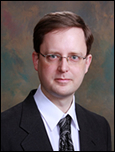 Dr. Ayers received his Ph.D. in Biochemistry from the Division of Nutritional Sciences at Cornell University, Ithaca, in 2007, where he researched the mechanisms of nuclear hormone receptor regulation. He then pursued postdoctoral studies on chromatin regulation at Lawrence Berkeley National Laboratory under the guidance of Terumi Kohwi-Shigematsu, Ph.D. Since then, he has studied the mechanisms of metabolic gene regulation by thyroid hormone in the Department of Genomic Medicine at Methodist Hospital Research Institute, under the leadership of John Baxter, MD and Paul Webb, Ph.D. This work has led to the project of his current proposal, focused on the investigation of serum lipid regulation, which he will pursue over the next two years. Dr. Ayers holds a Master’s degree in Bioinformatics from the University of Glasgow, Scotland, and a BA from Union College in Schenectady, NY.
Dr. Ayers received his Ph.D. in Biochemistry from the Division of Nutritional Sciences at Cornell University, Ithaca, in 2007, where he researched the mechanisms of nuclear hormone receptor regulation. He then pursued postdoctoral studies on chromatin regulation at Lawrence Berkeley National Laboratory under the guidance of Terumi Kohwi-Shigematsu, Ph.D. Since then, he has studied the mechanisms of metabolic gene regulation by thyroid hormone in the Department of Genomic Medicine at Methodist Hospital Research Institute, under the leadership of John Baxter, MD and Paul Webb, Ph.D. This work has led to the project of his current proposal, focused on the investigation of serum lipid regulation, which he will pursue over the next two years. Dr. Ayers holds a Master’s degree in Bioinformatics from the University of Glasgow, Scotland, and a BA from Union College in Schenectady, NY.
Type 3 Deiodinase in Dilated Heart Failure
Ari J Wassner, MD
Children’s Hospital Boston, Boston, Massachusetts
 Ari Wassner, MD is Director of the Thyroid Program at Boston Children’s Hospital and Assistant Professor of Pediatrics at Harvard Medical School in Boston, Massachusetts. His basic research has investigated the role of thyroid hormone metabolism in modulating local and systemic thyroid hormone signaling in disease states including heart failure and liver injury. As a pediatric endocrinologist, Dr. Wassner specializes in the care of children with pediatric thyroid disease, including congenital hypothyroidism and thyroid neoplasia, and he continues to conduct clinical research in these areas.
Ari Wassner, MD is Director of the Thyroid Program at Boston Children’s Hospital and Assistant Professor of Pediatrics at Harvard Medical School in Boston, Massachusetts. His basic research has investigated the role of thyroid hormone metabolism in modulating local and systemic thyroid hormone signaling in disease states including heart failure and liver injury. As a pediatric endocrinologist, Dr. Wassner specializes in the care of children with pediatric thyroid disease, including congenital hypothyroidism and thyroid neoplasia, and he continues to conduct clinical research in these areas.
2011 ATA Grants
Elucidating the in vivo Mechanisms by Which Thyroid Hormone Regulates Energy Expenditure
Inna Astapova, PhD
Beth Israel Deaconess Medical Center (Harvard Medical School) Boston, Massachusetts
Currently at Duke University School of Medicine, Durham, North Carolina
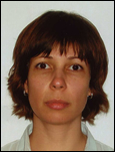 Dr. Astapova is a native of Moscow, Russia, and received her M.S. in Physiology from Lomonosov Moscow State University, Moscow. She conducted her graduate studies at Engelhardt Institue of Molecular Biology, Russian Academy of Sciences, and received a Ph.D. in Molecular Biology in 2002. Soon after that Dr. Astapova joined laboratory of Dr. Anthony N. Hollenberg at Beth Israel Deaconess Medical Center in Boston as a postdoctoral fellow, and, recently, Instructor in Medicine, to study the role of nuclear corepressors NCoR and SMRT in the transcriptional repression by thyroid hormone receptor. Her research interests include not only the molecular basis of thyroid hormone action, but also the role of thyroid hormone in the regulation of metabolism and energy homeostasis, and potential use of thyroid hormone and its analogs for treatment of obesity and metabolic disease. Press Release
Dr. Astapova is a native of Moscow, Russia, and received her M.S. in Physiology from Lomonosov Moscow State University, Moscow. She conducted her graduate studies at Engelhardt Institue of Molecular Biology, Russian Academy of Sciences, and received a Ph.D. in Molecular Biology in 2002. Soon after that Dr. Astapova joined laboratory of Dr. Anthony N. Hollenberg at Beth Israel Deaconess Medical Center in Boston as a postdoctoral fellow, and, recently, Instructor in Medicine, to study the role of nuclear corepressors NCoR and SMRT in the transcriptional repression by thyroid hormone receptor. Her research interests include not only the molecular basis of thyroid hormone action, but also the role of thyroid hormone in the regulation of metabolism and energy homeostasis, and potential use of thyroid hormone and its analogs for treatment of obesity and metabolic disease. Press Release
Role of interferon alpha in development of AITD: Epigenetic regulation of key genes
Mihaela Stefan, PhD
Mount Sinai School of Medicine New York, New York
 Dr. Mihaela Stefan completed her undergraduate studies at University of Bucharest, Romania (1990 -1995). She obtained the doctoral degree in Genetics from the same institution in 2000. As a graduate student she was the recipient of several fellowships that allowed her to work in a well-known human genetics laboratory at Tor Vergata University in Italy. She spent her post-doctoral training at University of Pennsylvania (2001 – 2005). In 2005 she was appointed as Research Assistant Professor at University of Pittsburgh were she worked until 2009 when she was appointed as Assistant Professor at Mount Sinai School of Medicine in New York. Her current interests focus on the genetic and epigenetic mechanisms and genes underlying the clinical phenotype in thyroiditis. She has received honors and awards for the following; 2002 Postdoctoral Translational Award Winner from the American Society of Human Genetics, the American Heart Association Postdoctoral Fellowship Award (2003-2005) and the 2004 Postdoctoral Translational Award Finalist from the American Society of Human Genetics. Press Release
Dr. Mihaela Stefan completed her undergraduate studies at University of Bucharest, Romania (1990 -1995). She obtained the doctoral degree in Genetics from the same institution in 2000. As a graduate student she was the recipient of several fellowships that allowed her to work in a well-known human genetics laboratory at Tor Vergata University in Italy. She spent her post-doctoral training at University of Pennsylvania (2001 – 2005). In 2005 she was appointed as Research Assistant Professor at University of Pittsburgh were she worked until 2009 when she was appointed as Assistant Professor at Mount Sinai School of Medicine in New York. Her current interests focus on the genetic and epigenetic mechanisms and genes underlying the clinical phenotype in thyroiditis. She has received honors and awards for the following; 2002 Postdoctoral Translational Award Winner from the American Society of Human Genetics, the American Heart Association Postdoctoral Fellowship Award (2003-2005) and the 2004 Postdoctoral Translational Award Finalist from the American Society of Human Genetics. Press Release
2010 ATA Grants
Regulation of Presympathetic Neuronal Activity by Thyroid Hormone
Jens Mittag, PhD
Karolinska Institutet Stockholm, Sweden
Currently at Universität zu Lübeck, Lübeck, Germany
 Jens Mittag PhD was born in Duisburg (Germany) in 1978 and grew up in Muenster (Germany). He received his diploma and his PhD in biochemistry from the University of Hannover (Germany) in 2003 and 2006 respectively. From 2007 he was a postdoctoral fellow in the lab of Björn Vennström at the Karolinska Institute in Stockholm (Sweden) funded by a longterm fellowship from EMBO and the German Research Council DFG. In 2010 he became Assistant Professor and junior group leader at the department of Cell and Molecular Biology at the Karolinska Institute, where he also completed his Associate Professorship in Endocrinology in 2011. His primary research interests are the central effects of thyroid hormone in comparison with its well-known peripheral effects.
Jens Mittag PhD was born in Duisburg (Germany) in 1978 and grew up in Muenster (Germany). He received his diploma and his PhD in biochemistry from the University of Hannover (Germany) in 2003 and 2006 respectively. From 2007 he was a postdoctoral fellow in the lab of Björn Vennström at the Karolinska Institute in Stockholm (Sweden) funded by a longterm fellowship from EMBO and the German Research Council DFG. In 2010 he became Assistant Professor and junior group leader at the department of Cell and Molecular Biology at the Karolinska Institute, where he also completed his Associate Professorship in Endocrinology in 2011. His primary research interests are the central effects of thyroid hormone in comparison with its well-known peripheral effects.
2009 ATA Grants
Modeling BRaf-dependent thyroid cancer in the mouse
David G. McFadden, MD, PhD
Thyroid Associates, Boston, Massachusetts
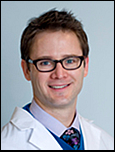 David McFadden is an Instructor in Medicine at Harvard Medical School and the Massachusetts General Hospital Thyroid Unit and a Postdoctoral Associate at the Massachusetts Institute of Technology Koch Institute for Integrative Cancer Research in the laboratory of Dr. Tyler Jacks. He graduated summa cum laude from Texas A&M University and subsequently obtained his MD, PhD degrees at UT Southwestern Medical Center where he studied tissue-specific transcription factors using genetically engineered mice in the laboratory of Dr. Eric N. Olson. He completed internship and residency in internal medicine at Brigham and Women’s Hospital and subsequently trained in endocrinology at the Massachusetts General Hospital under the mentorship of Dr. Gilbert Daniels. He maintains a weekly clinic in the MGH Thyroid Unit focused on the care of thyroid cancer patients. His research centers on the use of genetically engineered mice to study tumor progression, with an interest in mouse models of thyroid carcinoma. He received an ATA Research Award in 2009 that has partially supported his work to engineer novel mouse models of thyroid carcinoma.
David McFadden is an Instructor in Medicine at Harvard Medical School and the Massachusetts General Hospital Thyroid Unit and a Postdoctoral Associate at the Massachusetts Institute of Technology Koch Institute for Integrative Cancer Research in the laboratory of Dr. Tyler Jacks. He graduated summa cum laude from Texas A&M University and subsequently obtained his MD, PhD degrees at UT Southwestern Medical Center where he studied tissue-specific transcription factors using genetically engineered mice in the laboratory of Dr. Eric N. Olson. He completed internship and residency in internal medicine at Brigham and Women’s Hospital and subsequently trained in endocrinology at the Massachusetts General Hospital under the mentorship of Dr. Gilbert Daniels. He maintains a weekly clinic in the MGH Thyroid Unit focused on the care of thyroid cancer patients. His research centers on the use of genetically engineered mice to study tumor progression, with an interest in mouse models of thyroid carcinoma. He received an ATA Research Award in 2009 that has partially supported his work to engineer novel mouse models of thyroid carcinoma.
Induction of Antigen-Specific Tolerance in Autoimmune Thyroiditis
Leonard Moise, ScB, PhD
University of Rhode Island, Providence, Rhode Island
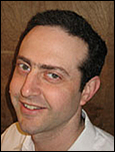
Press Release
2008 ATA Grants
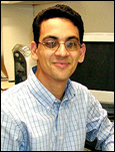
Nashaat Z. Gerges, PhD
Medical College of Wisconsin, Milwaukee, Wisconsin
Press Release
Macrophage Causes Thyroid Diseases in LMP7 KO Mice: A New Spontaneous Thyroiditis Model
Hiroaki Kimura, PhD
The Johns Hopkins Medical Institutions, Baltimore, Maryland
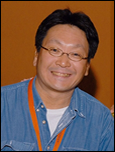 Dr. Hiroaki Kimura is an assistant professor at Jichi Medical University, Center for Molecular Medicine, Division of Inflammation Research (Tochigi, Japan), studying thyroidal inflammation and metabolic diseases from 2010. He graduated and obtained his PhD at Nagoya City University, Graduate School of Pharmaceutical Sciences (Nagoya, Japan), studying transcriptional regulation of inflammatory cytokines. After he studied mycobacterial infection at the National Institute of Infectious Diseases (Tokyo, Japan), he joined Dr. Patrizio Caturegli’s lab as a post-doctoral fellow at the Johns Hopkins School of Medicine, Pathology and started a research in autoimmune thyroid diseases. He became a research associate and received an ATA research grant in 2008. He received Young Investigator Award from Asia Oceania Thyroid Association and Japan Thyroid Association in 2009.
Dr. Hiroaki Kimura is an assistant professor at Jichi Medical University, Center for Molecular Medicine, Division of Inflammation Research (Tochigi, Japan), studying thyroidal inflammation and metabolic diseases from 2010. He graduated and obtained his PhD at Nagoya City University, Graduate School of Pharmaceutical Sciences (Nagoya, Japan), studying transcriptional regulation of inflammatory cytokines. After he studied mycobacterial infection at the National Institute of Infectious Diseases (Tokyo, Japan), he joined Dr. Patrizio Caturegli’s lab as a post-doctoral fellow at the Johns Hopkins School of Medicine, Pathology and started a research in autoimmune thyroid diseases. He became a research associate and received an ATA research grant in 2008. He received Young Investigator Award from Asia Oceania Thyroid Association and Japan Thyroid Association in 2009.
Press Release
2007 ATA Grants
Application of Reverse Genetics in the Identification of Defects in the Dual Oxidase Maturation Factor in Humans
Helmut Grasberger, MD
University of Chicago, Chicago, Illinois
Currently at University of Michigan, Minneapolis, Minnesota
 Helmut Grasberger, MD currently holds the position of Research Assistant Professor as a member of the Endocrinology Section at the University of Chicago Medical Center. Dr. Grasberger attended Medical school at the Ludwig-Maximilians University in Munich, where he obtained his M.D. in 1998, and a Dr. med. summa cum laude for his work on structure-function studies of thyroxin-binding globulin in 2000. In the same year, he began his postdoctoral training at the Department of Biochemistry and Molecular Biology at the University of Chicago under the guidance of Dr. Graeme Bell, and in 2003 joined the Thyroid Study Unit as research associate in the laboratory of Dr. Samuel Refetoff. His recent original work includes the identification of a locus on chromosome 15 associated with the dominantly inherited resistance to TSH and the discovery of the long-sought gene encoding a maturation factor necessary for the activation of the hydrogen peroxide generating enzymes in the thyroid.
Helmut Grasberger, MD currently holds the position of Research Assistant Professor as a member of the Endocrinology Section at the University of Chicago Medical Center. Dr. Grasberger attended Medical school at the Ludwig-Maximilians University in Munich, where he obtained his M.D. in 1998, and a Dr. med. summa cum laude for his work on structure-function studies of thyroxin-binding globulin in 2000. In the same year, he began his postdoctoral training at the Department of Biochemistry and Molecular Biology at the University of Chicago under the guidance of Dr. Graeme Bell, and in 2003 joined the Thyroid Study Unit as research associate in the laboratory of Dr. Samuel Refetoff. His recent original work includes the identification of a locus on chromosome 15 associated with the dominantly inherited resistance to TSH and the discovery of the long-sought gene encoding a maturation factor necessary for the activation of the hydrogen peroxide generating enzymes in the thyroid.
Thyroid Hormone, Type 2 Deiodinase, and Energy Expenditure in Human Skeletal Muscle
Brian Kim, MD
Brigham and Women’s Hospital, Boston, Massachusetts
Currently at Rush University Medical Center, Chicago, Illinois
 Brian W. Kim is an assistant professor of medicine and Program Director in the Division of Endocrinology, Diabetes, and Metabolism at the University of Miami Miller School of Medicine. Dr. Kim obtained his M.D. from the Columbia University College of Physicians and Surgeons, and did his residency in internal medicine at Beth Israel Deaconess Medical Center and his fellowship in endocrinology at Brigham and Women’s Hospital. He was an instructor in medicine at Harvard Medical School before joining the faculty in Miami in 2009. His research interests include thyroid hormone action and metabolism, and his clinical practice focuses on thyroid cancer.
Brian W. Kim is an assistant professor of medicine and Program Director in the Division of Endocrinology, Diabetes, and Metabolism at the University of Miami Miller School of Medicine. Dr. Kim obtained his M.D. from the Columbia University College of Physicians and Surgeons, and did his residency in internal medicine at Beth Israel Deaconess Medical Center and his fellowship in endocrinology at Brigham and Women’s Hospital. He was an instructor in medicine at Harvard Medical School before joining the faculty in Miami in 2009. His research interests include thyroid hormone action and metabolism, and his clinical practice focuses on thyroid cancer.
2006 ATA Grants
Determination of the Oncogenic Potential of PAX8/PPARy Fusion Protein (PPFP) and Elucidation of its Mechanism of Action in Follicular Thyroid Carcinoma
Honey V. Reddi, PhD
Mayo Clinic, Rochester, Minnesota
Currently at The Jackson Laboratory, Farmington, Connecticut
 Honey V Reddi, PhD is the Director for Clinical and Translational Genomics Services at The Jackson Laboratory in Farmington, CT. She came to JAX from Transgenomic Inc., where she held the role of Vice President for Clinical Operations and Clinical Laboratory Director. She earned her Ph.D. in Biotechnology from the International Center for Genetic Engineering & Biotechnology (ICGEB) and Hamdard University (New Delhi, India), and completed a fellowship with the Mayo Clinic (Rochester, MN) in Clinical Molecular Genetics. Dr. Reddi is an ABMGG-certified Molecular Geneticist with New York State accreditation for Genetic Testing and Tumor Markers and has 6+ years of experience in successfully leading CLIA/CAP accredited labs. Her research interests include cancer biology, viro-therapeutics and the genetics of somatic and inherited disorders. Dr. Reddi was recently awarded the Women of Innovation Award – in the Category of Large Business – Innovation and Leadership by the Connecticut Technology Council.
Honey V Reddi, PhD is the Director for Clinical and Translational Genomics Services at The Jackson Laboratory in Farmington, CT. She came to JAX from Transgenomic Inc., where she held the role of Vice President for Clinical Operations and Clinical Laboratory Director. She earned her Ph.D. in Biotechnology from the International Center for Genetic Engineering & Biotechnology (ICGEB) and Hamdard University (New Delhi, India), and completed a fellowship with the Mayo Clinic (Rochester, MN) in Clinical Molecular Genetics. Dr. Reddi is an ABMGG-certified Molecular Geneticist with New York State accreditation for Genetic Testing and Tumor Markers and has 6+ years of experience in successfully leading CLIA/CAP accredited labs. Her research interests include cancer biology, viro-therapeutics and the genetics of somatic and inherited disorders. Dr. Reddi was recently awarded the Women of Innovation Award – in the Category of Large Business – Innovation and Leadership by the Connecticut Technology Council.
Novel Thyroid Hormone Based Therapies for Human Cardiac Disease
Sara Danzi, PhD
NYU School of Medicine/North Shore University Hospital, Manhasset, New York
 Dr. Sara Danzi received her B.S. in Biology, cum laude, from the State University of New York at Albany, an M.A. in Biology from Hofstra University in New York and M.Phil. and Ph.D. in Molecular Genetics from the City University of New York. She was awarded a post-doctoral fellowship from the American Heart Association and later received an American Heart Association Leadership Award. Dr. Danzi is a member of the American Thyroid Association and the American Heart Association Scientific Council on Basic Cardiovascular Sciences. She is currently Assistant Professor of Medicine at New York University School of Medicine and Director of the Molecular Endocrinology Laboratory at North Shore University Hospital Feinstein Institute for Medical Research. Her research is focused on the study of the basic transcriptional mechanisms that mediate the effects of thyroid hormone on the heart and cardiovascular system.
Dr. Sara Danzi received her B.S. in Biology, cum laude, from the State University of New York at Albany, an M.A. in Biology from Hofstra University in New York and M.Phil. and Ph.D. in Molecular Genetics from the City University of New York. She was awarded a post-doctoral fellowship from the American Heart Association and later received an American Heart Association Leadership Award. Dr. Danzi is a member of the American Thyroid Association and the American Heart Association Scientific Council on Basic Cardiovascular Sciences. She is currently Assistant Professor of Medicine at New York University School of Medicine and Director of the Molecular Endocrinology Laboratory at North Shore University Hospital Feinstein Institute for Medical Research. Her research is focused on the study of the basic transcriptional mechanisms that mediate the effects of thyroid hormone on the heart and cardiovascular system.
2005 ATA Grants
Generation and Analysis of Mice Deficient in the Thyroid Hormone Transporter MCT8
Heike Heuer, PhD
Leibniz Institute for Age Research – Fritz Lipmann Institute, Jena, Germany
Currently at University Hospital Essen, Essen, Germany

Mechanism of Regulation Gene Expression by Thyroid Hormone Receptors Through RNA Binding Pathways
Bin Xu, PhD
University of Michigan, Ann Arbor, Michigan
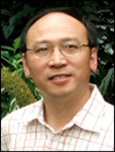 Bin Xu, Ph.D. Bin Xu, Ph.D. is a Research Assistant Professor in the Division of Metabolism, Endocrinology and Diabetes at the University of Michigan. Dr. Xu received his bachelor’s degree in 1986 and Ph.D. in 1996 from Ocean University of China. Dr. Xu continued at Ocean University of China as a Lecturer in Aquaculture since 1991 and became an Associate professor in 1996. Dr. Xu completed his postgraduate training in Biochemistry and Molecular Endocrinology from University of Michigan Medical School. Dr. Xu joined the faculty at the University of Michigan in 2001.
Bin Xu, Ph.D. Bin Xu, Ph.D. is a Research Assistant Professor in the Division of Metabolism, Endocrinology and Diabetes at the University of Michigan. Dr. Xu received his bachelor’s degree in 1986 and Ph.D. in 1996 from Ocean University of China. Dr. Xu continued at Ocean University of China as a Lecturer in Aquaculture since 1991 and became an Associate professor in 1996. Dr. Xu completed his postgraduate training in Biochemistry and Molecular Endocrinology from University of Michigan Medical School. Dr. Xu joined the faculty at the University of Michigan in 2001.
Dr. Xu’s research interests focus on regulation of gene expression by nuclear receptors (NRs) that are coordinated by direct or indirect interaction with RNA. He has characterized the novel RNA-binding domains in thyroid hormone receptors TR1 and TR2 steroidogenic factor 1 (SF-1) and PPAR![]() . Dr. Xu’s recent research has been focused on the biological function of the non-coding RNA of steroid receptor RNA activator (SRA), and its coding protein (SRAP) in adipocytes, and the long term research interest is to understand the mechanism by which SRA/SRAP regulate fate of mesenchymal stem cells to the adipocyte lineage, and differentiation to white or brown adipocytes, and SRA/SRAP modulate insulin action and energy balance.
. Dr. Xu’s recent research has been focused on the biological function of the non-coding RNA of steroid receptor RNA activator (SRA), and its coding protein (SRAP) in adipocytes, and the long term research interest is to understand the mechanism by which SRA/SRAP regulate fate of mesenchymal stem cells to the adipocyte lineage, and differentiation to white or brown adipocytes, and SRA/SRAP modulate insulin action and energy balance.
2004 ATA Grants
Fibroblast Immune Activation in Graves’ Disease
Raymond S. Douglas, MD, PhD
Harbor-UCLA Research and Education Institute, Torrance, California
 Raymond S. Douglas is Associate Professor of Ophthalmology at the University of Michigan. He was formerly Assistant Professor of Ophthalmology at UCLA, Assistant Professor of Ophthalmology and Molecular Medicine at Harbor-UCLA Medical Center and Assistant Professor and Director of Orbital and Facial Plastic Surgery at the Greater Los Angeles Veterans Hospital. Dr. Douglas obtained his BSE, MD and PhD at the University of Pennsylvania, before completing his residency at the University of Pennsylvania and his fellowship at UCLA in Facial Plastic and Reconstructive Surgery. He specializes in orbital surgery, especially minimally invasive surgery, and decompressions for thyroid-associated eye disease. His research focus is Graves’ eye disease, autoimmune disease of the orbit and minimally invasive approaches to the orbit.
Raymond S. Douglas is Associate Professor of Ophthalmology at the University of Michigan. He was formerly Assistant Professor of Ophthalmology at UCLA, Assistant Professor of Ophthalmology and Molecular Medicine at Harbor-UCLA Medical Center and Assistant Professor and Director of Orbital and Facial Plastic Surgery at the Greater Los Angeles Veterans Hospital. Dr. Douglas obtained his BSE, MD and PhD at the University of Pennsylvania, before completing his residency at the University of Pennsylvania and his fellowship at UCLA in Facial Plastic and Reconstructive Surgery. He specializes in orbital surgery, especially minimally invasive surgery, and decompressions for thyroid-associated eye disease. His research focus is Graves’ eye disease, autoimmune disease of the orbit and minimally invasive approaches to the orbit.
2003 ATA Grants
Tyrosine Kinase Receptor Oncogenes and Prostanoid Biosynthesis: Role of RET/PTC-induced Activation of Prostaglandin E2 Synthase in Thyroid Tumorigenesis
Jeffrey A. Knauf, PhD
University of Cincinnati College of Medicine, Cincinnati, Ohio
Currently at Memorial Sloan Kettering Cancer Center, New York, New York
Jeffrey Knauf, PhD is an Associate Attending Biologist.
2002 ATA Grants
Type 2 Deiodinase-mediated Intracellular Thyrotoxicosis in Brown Adipocytes Is Critical for Energy Homeostasis and Adaptive Thermogenesis in Small Mammals
Antonio C. Bianco, MD, PhD
Brigham and Women’s Hospital, Boston, Massachusetts
Currently at University of Chicago
 Antonio C. Bianco, MD, PhD, Professor of Medicine, University of Chicago, Antonio Bianco is a physician-scientist working in the thyroid field. He obtained his medical training and a Ph.D. in Human Physiology in Sao Paulo Brazil and later immigrated to the US where he maintains a federally funded laboratory. Throughout his career, he has mentored approximately 40 graduate students and post-doctoral fellows. His contributions to the thyroid field have been in the area of thyroid hormone metabolism and action with implications to the treatment of hypothyroid patients. Together with his students and collaborators, Dr. Bianco has published approximately 200 peer-reviewed articles, delivered more than 100 lectures across the United States and around the world, and received awards and elected to membership in prestigious medical societies. He also served in different administrative capacities and as President of the American Thyroid Association (2015-16).
Antonio C. Bianco, MD, PhD, Professor of Medicine, University of Chicago, Antonio Bianco is a physician-scientist working in the thyroid field. He obtained his medical training and a Ph.D. in Human Physiology in Sao Paulo Brazil and later immigrated to the US where he maintains a federally funded laboratory. Throughout his career, he has mentored approximately 40 graduate students and post-doctoral fellows. His contributions to the thyroid field have been in the area of thyroid hormone metabolism and action with implications to the treatment of hypothyroid patients. Together with his students and collaborators, Dr. Bianco has published approximately 200 peer-reviewed articles, delivered more than 100 lectures across the United States and around the world, and received awards and elected to membership in prestigious medical societies. He also served in different administrative capacities and as President of the American Thyroid Association (2015-16).
Targeted Overexpression of a Dominant Negative Insulin Growth Factor I (IGF-1) in Thyroid Follicular Cells in Vivo
Peter Kopp, MD
Northwestern University, Chicago, Illinois
 Peter Kopp, MD is an Associate Professor in the Division of Endocrinology, and he serves as Director ad interim of the Center for Genetic Medicine at Northwestern University in Chicago. He obtained his MD degree from the University of Berne, Switzerland, where he also completed his training in Internal Medicine and Endocrinology. He is an ATA member since 1997 and has served on the Program Committee (Co-Chair in 2007), the Website Advisory Committee, the CME and Guidelines Committee, and the Publications Committee. He is currently a member of the Board of Directors and the Editor-in-Chief for the official journal of the American Thyroid Association, Thyroid. His principal research interests include congenital disorders of thyroid hormone synthesis, in particular Pendred’s syndrome. His clinical activities focus on patients with thyroid dysfunction and thyroid cancer.
Peter Kopp, MD is an Associate Professor in the Division of Endocrinology, and he serves as Director ad interim of the Center for Genetic Medicine at Northwestern University in Chicago. He obtained his MD degree from the University of Berne, Switzerland, where he also completed his training in Internal Medicine and Endocrinology. He is an ATA member since 1997 and has served on the Program Committee (Co-Chair in 2007), the Website Advisory Committee, the CME and Guidelines Committee, and the Publications Committee. He is currently a member of the Board of Directors and the Editor-in-Chief for the official journal of the American Thyroid Association, Thyroid. His principal research interests include congenital disorders of thyroid hormone synthesis, in particular Pendred’s syndrome. His clinical activities focus on patients with thyroid dysfunction and thyroid cancer.
2001 ATA Grants
Interleukin-12 and Autoimmune Thyroiditis
Patrizio Caturegli, MD
The Johns Hopkins University, Baltimore, Maryland
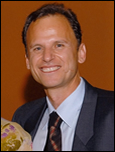
Role of Thyroid Hormone and TRAP230 in Dopaminergic Cell Survival and Differentiation
Robert Philibert, MD, PhD
Neuroscience Program, University of Iowa, Iowa City, Iowa
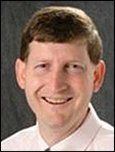 Robert Philibert MD, PhD is a Professor of Psychiatry and a member of both the Neuroscience and Genetics Program at the University of Iowa. He runs the Psychiatric Genetics Laboratory. Dr. Philibert began his career through the Medical Scientist Training Program at the University of Iowa and finished his psychiatry residency at the University of Iowa Hospitals and Clinics. After residency, he completed Pharmacology Research Associate Training Program Fellowship at the National Institutes of Health and then served for four years as a Senior Staff fellow. In 1998, he returned to the University of Iowa to establish a program in psychiatric genetics participates in the training of medical students and graduate students from a wide variety of disciplines including Neuroscience and Engineering. He has a broad research portfolio that includes 1) work on the effects of MED12 variation on transcriptional regulation and vulnerability to behavioral illness, 2) the role of DNA methylation and other epigenetic phenomena in moderating or mediating vulnerability to behavioral health outcomes, and 3) gene environment interactions.
Robert Philibert MD, PhD is a Professor of Psychiatry and a member of both the Neuroscience and Genetics Program at the University of Iowa. He runs the Psychiatric Genetics Laboratory. Dr. Philibert began his career through the Medical Scientist Training Program at the University of Iowa and finished his psychiatry residency at the University of Iowa Hospitals and Clinics. After residency, he completed Pharmacology Research Associate Training Program Fellowship at the National Institutes of Health and then served for four years as a Senior Staff fellow. In 1998, he returned to the University of Iowa to establish a program in psychiatric genetics participates in the training of medical students and graduate students from a wide variety of disciplines including Neuroscience and Engineering. He has a broad research portfolio that includes 1) work on the effects of MED12 variation on transcriptional regulation and vulnerability to behavioral illness, 2) the role of DNA methylation and other epigenetic phenomena in moderating or mediating vulnerability to behavioral health outcomes, and 3) gene environment interactions.
 2000 ATA Grants
2000 ATA Grants
Thyroid Hormone Regulation of Neural Differentiation
Yan-Yun Liu, PhD
West LA VA Medical Center, Los Angeles, California
Currently at University of California/VA Medical Center, Los Angeles, California
The ATA supported Yan-Yun (Kaitlyn) Liu’s, PhD research project in understanding the role of thyroid hormone neural differentiation of embryonic stem cells. Dr. Liu obtained B.S. from University of Jilin (China), M.S. from University of Beijing (China), and Ph.D. in Molecular Biology from University of Wales (U.K). She had two years of pre-doctorial training (1994-1996) in Endocrinology division in MD Anderson Cancer Center, Houston, UT, and her post graduate training was in Department of Medicine, David Geffen School of Medicine at UCLA (1997-2000). She became a research faculty member in 2001 at UCLA. In 2004, she became an assistant professor and in 2010 as associate professor. Although her current research interest has been shifted to thyroid hormone receptor isoform-specific actions in metabolism she still carries on some research in understanding the role of T3 in brain development.
The Role of AKT in the Thyroid Tumorigenesis Objectives
Matthew D. Ringel, MD
Washington Hospital Center, Washington DC
 Matthew D. Ringel is a Professor of Medicine in the Division of Endocrinology and Metabolism at Ohio State University and Arthur G. James Comprehensive Cancer Center. He is the Director of the Endocrinology fellowship at Ohio State and is the co-director of the Ohio State Thyroid Cancer Unit. He currently is a member of the ATA Board of Directors, chair of the publication committee, editor of ATA’s SIGNAL and a Co-Chair of the 2009 Annual Meeting Program Committee. Dr. Ringel has an active clinical practice focused on thyroid cancer. His laboratory program focuses on defining the signaling pathways responsible for aggressive thyroid cancer behavior with a particular interest in the PI3 kinase/AKT pathway and other signaling cascades that regulate cell motility and invasion.
Matthew D. Ringel is a Professor of Medicine in the Division of Endocrinology and Metabolism at Ohio State University and Arthur G. James Comprehensive Cancer Center. He is the Director of the Endocrinology fellowship at Ohio State and is the co-director of the Ohio State Thyroid Cancer Unit. He currently is a member of the ATA Board of Directors, chair of the publication committee, editor of ATA’s SIGNAL and a Co-Chair of the 2009 Annual Meeting Program Committee. Dr. Ringel has an active clinical practice focused on thyroid cancer. His laboratory program focuses on defining the signaling pathways responsible for aggressive thyroid cancer behavior with a particular interest in the PI3 kinase/AKT pathway and other signaling cascades that regulate cell motility and invasion.
1999 ATA Grant
 Megalin (gp330) in Thyroid Physiology and Pathology
Megalin (gp330) in Thyroid Physiology and Pathology
Michele Marinó, MD
Massachusetts General Hospital, Harvard Medical School, Cambridge, Massachusetts
Currently at University of Pisa, Italy
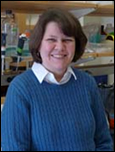 Regulation of Thyroid Hormone Responsive Genes by the Nuclear Receptor RIP 14
Regulation of Thyroid Hormone Responsive Genes by the Nuclear Receptor RIP 14
Ann Marie Zavacki, MD
Brigham and Women’s Hospital, Boston, Massachusetts
Dr. Zavacki is currently a Research Associate at Brigham and Women’s Hospital and an Assistant Professor of Medicine, Harvard Medical School.
1998 ATA Grants
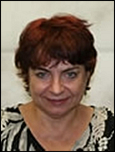 Molecular Mechanisms for Thyroid Hormone Regulation of Motor Neuronal Process Growth
Molecular Mechanisms for Thyroid Hormone Regulation of Motor Neuronal Process Growth
Elzbieta Biesiada, PhD
Children’s Hospital of Orange County, Orange, California
Mutational and Functional Analysis of Candidate Susceptibility Genes in Graves’ Disease
Yaron Tomer, MD
Mount Sinai School of Medicine, New York, New York
Currently at Albert Einstein College of Medicine, Bronx, New York
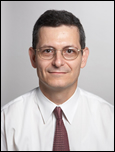 Yaron M. Tomer is the Chief of the Hilda & J. Lester Gabrilove Division of Endocrinology, Diabetes and Bone Disease at Mount Sinai Medical Center, New York. Dr. Tomer received his medical degree from the Sackler School of Medicine at Tel Aviv University, Israel. He trained in Internal Medicine at Sheba Medical Center, Israel, and continued his training in Internal Medicine and in Endocrinology at The Mount Sinai Medical Center. Dr. Tomer’s research focuses on the immunogenetic, epigenetic, and environmental mechanisms causing thyroid autoimmunity, and type 1 diabetes. Dr. Tomer serves as a Special Editor of the journal, Thyroid, and serves on the editorial boards of Endocrinology, the Journal of Clinical Endocrinology and Metabolism, and Autoimmunity Reviews, among others. He is a member of the American Society for Clinical Investigation and a Fellow of the American College of Physicians, as well as the American College of Endocrinology. Dr. Tomer was the co-Chair of the program committee of the 2010 Spring Meeting of the American Thyroid Association, and served on the program committee of the 14th ITC held in Paris, France in 2010.
Yaron M. Tomer is the Chief of the Hilda & J. Lester Gabrilove Division of Endocrinology, Diabetes and Bone Disease at Mount Sinai Medical Center, New York. Dr. Tomer received his medical degree from the Sackler School of Medicine at Tel Aviv University, Israel. He trained in Internal Medicine at Sheba Medical Center, Israel, and continued his training in Internal Medicine and in Endocrinology at The Mount Sinai Medical Center. Dr. Tomer’s research focuses on the immunogenetic, epigenetic, and environmental mechanisms causing thyroid autoimmunity, and type 1 diabetes. Dr. Tomer serves as a Special Editor of the journal, Thyroid, and serves on the editorial boards of Endocrinology, the Journal of Clinical Endocrinology and Metabolism, and Autoimmunity Reviews, among others. He is a member of the American Society for Clinical Investigation and a Fellow of the American College of Physicians, as well as the American College of Endocrinology. Dr. Tomer was the co-Chair of the program committee of the 2010 Spring Meeting of the American Thyroid Association, and served on the program committee of the 14th ITC held in Paris, France in 2010.
Thyroid Hormone Deficiency During Fetal and Early Childhood Development
Cary N. Mariash, MD
University of Minnesota, Minneapolis, Minnesota
 Cary N. Mariash is currently the Medical Director and CEO of the Methodist Research Institute at Methodist Hospital, Indianapolis, Indiana. Formerly he was the director of the Division of Endocrinology and Diabetes at the University of Minnesota. He received his medical degree from the University of California at San Diego and his internal medicine and endocrinology training at the University of Minnesota. His research activities were NIH funded and focused on the role of thyroid hormone and carbohydrates on the regulation of lipogenesis in liver tissue. He currently supervises the basic science laboratories and the clinical research group at MRI. After the funding of the research project Dr. Mariash’s group received NIH funding based on the support from the ATA. The NIH grant was RO1-DK54060 titled “Thyroid Hormone Regulation of Brain Development”.
Cary N. Mariash is currently the Medical Director and CEO of the Methodist Research Institute at Methodist Hospital, Indianapolis, Indiana. Formerly he was the director of the Division of Endocrinology and Diabetes at the University of Minnesota. He received his medical degree from the University of California at San Diego and his internal medicine and endocrinology training at the University of Minnesota. His research activities were NIH funded and focused on the role of thyroid hormone and carbohydrates on the regulation of lipogenesis in liver tissue. He currently supervises the basic science laboratories and the clinical research group at MRI. After the funding of the research project Dr. Mariash’s group received NIH funding based on the support from the ATA. The NIH grant was RO1-DK54060 titled “Thyroid Hormone Regulation of Brain Development”.
Thyroid Hormone Regulation of Mouse Somatostatin 5 Receptor Promoter
Whitney Woodmansee, MD
University of Colorado Health Science Center, Denver, Colorado
 Whitney Woodmanse, MD is currently the Director of Clinical Neuroendocrine Program at Brigham & Womans’s Hospital. She completed her undergraduate and masters degree training at the University of Colorado, followed by medical school training, internal medicine residency and Endocrinology fellowship at the University of Colorado Health Sciences Center. Dr. Woodmansee has received many awards including a Student Honors and Research Committee Award in 1990 and 1991, the Robert H. Felix Award for best thesis in 1992, and a Clinical Scientist Development Award from the NIH.
Whitney Woodmanse, MD is currently the Director of Clinical Neuroendocrine Program at Brigham & Womans’s Hospital. She completed her undergraduate and masters degree training at the University of Colorado, followed by medical school training, internal medicine residency and Endocrinology fellowship at the University of Colorado Health Sciences Center. Dr. Woodmansee has received many awards including a Student Honors and Research Committee Award in 1990 and 1991, the Robert H. Felix Award for best thesis in 1992, and a Clinical Scientist Development Award from the NIH.
1997 ATA Grants

Thyroid Hormone-dependent Modulation of Brain Function: A Pet Study
Lynn Burmeister, MD – University of Pittsburgh, Pittsburgh, Pennsylvania
Currently at University of Minnesota Medical School, Minneapolis, Minnesota
Thyroid Hormone Receptor and RORa Action on Neurotrophin Gene Expression in the Developing Cerebellum
Noriyuki Koibuchi, MD – Brigham and Women’s Hospital, Boston, Massachusetts
Currently at Gunma University Graduate School of Medicine, Maebashi, Japan
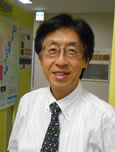 Noriyuki Koibuchi, MD is a Professor and Director of Integrative Physiology at the Gunma University Graduate School of Medicine, Maebashi, Japan. Dr. Koibuchi has a PhD in Physiology and a MD from Gunma University School of Medicine. He completed a Postdoctoral Research Fellowship in Neurobiology and Behavior at the Rockefeller University. Following an Assistant/Associate Professor at the Dokkyo University School of Medicine, and a Visiting Assistant Professor at the Harvard Medical School, he started current position in 2001. He is/was serving as a council member in several societies such as the Physiological Society in Japan, the Japan Endocrine Society, and the Japan Thyroid Association. He is also serving as an Associated Editor in several journals such as The Cerebellum and Frontiers in Endocrinology.
Noriyuki Koibuchi, MD is a Professor and Director of Integrative Physiology at the Gunma University Graduate School of Medicine, Maebashi, Japan. Dr. Koibuchi has a PhD in Physiology and a MD from Gunma University School of Medicine. He completed a Postdoctoral Research Fellowship in Neurobiology and Behavior at the Rockefeller University. Following an Assistant/Associate Professor at the Dokkyo University School of Medicine, and a Visiting Assistant Professor at the Harvard Medical School, he started current position in 2001. He is/was serving as a council member in several societies such as the Physiological Society in Japan, the Japan Endocrine Society, and the Japan Thyroid Association. He is also serving as an Associated Editor in several journals such as The Cerebellum and Frontiers in Endocrinology.
Novel and Multi-Disciplinary Approach to Understanding the Physiological Regulation by Thyroid Hormone of the TRH Neurons in the Paraventricular Nucleus of the Hypothalamus
Stephanie L. Lee, MD, PhD
Tufts University, New England Medical Center, Boston, Massachusetts
 Stephanie L. Lee is an Associate Professor of Medicine at the Boston University School of Medicine, Associate Chief of the Section of Endocrinology, Diabetes and Nutrition and Director of the Thyroid Nodule and Cancer Center. Dr. Lee has a PhD in Physiology/Pharmacology and a MD from the UC San Diego School of Medicine. She completed a Clinical Fellowship in Endocrinology and a Research Fellowship in Molecular Medicine at the New England Medical Center. The BMC Thyroid Nodule and Cancer Center is a comprehensive multidisciplinary center for the evaluation and treatment of patients with thyroid nodules and cancer that promotes translational research targeted to improve diagnosis and management of patients with thyroid disease. Dr. Lee coordinates all aspects of patient care for the diagnosis and treatment of thyroid diseases including ultrasonography and biopsy of thyroid masses and adenopathy, and formal dosimetry studies for life-threatening cases of thyroid cancer. Dr. Lee is recognized for her outstanding skills as a teacher and clinician with the 2007-9 Robert Evans Dawson Clinician Award from the Department of Medicine. She recently participated in writing the 2006 and the 2009 ATA evidence-based guidelines for the diagnosis and management of thyroid nodules and cancer.
Stephanie L. Lee is an Associate Professor of Medicine at the Boston University School of Medicine, Associate Chief of the Section of Endocrinology, Diabetes and Nutrition and Director of the Thyroid Nodule and Cancer Center. Dr. Lee has a PhD in Physiology/Pharmacology and a MD from the UC San Diego School of Medicine. She completed a Clinical Fellowship in Endocrinology and a Research Fellowship in Molecular Medicine at the New England Medical Center. The BMC Thyroid Nodule and Cancer Center is a comprehensive multidisciplinary center for the evaluation and treatment of patients with thyroid nodules and cancer that promotes translational research targeted to improve diagnosis and management of patients with thyroid disease. Dr. Lee coordinates all aspects of patient care for the diagnosis and treatment of thyroid diseases including ultrasonography and biopsy of thyroid masses and adenopathy, and formal dosimetry studies for life-threatening cases of thyroid cancer. Dr. Lee is recognized for her outstanding skills as a teacher and clinician with the 2007-9 Robert Evans Dawson Clinician Award from the Department of Medicine. She recently participated in writing the 2006 and the 2009 ATA evidence-based guidelines for the diagnosis and management of thyroid nodules and cancer.
Physiopathology of Brain Dysfunctions in Congenital Hypothyroidism
Jack Puymirat, MD, PhD and Robert Denver, PhD
CHU Laval Research Center, Sainte Foy, Canada
 Dr. Jack Puymirat received his medical and scientific training from various different institutions in Paris France. In 1989 moved to Quebec Canada and is now currently the director of Human Genetics Unit located in the Centre Hospitalier Université Laval (CHUL) Research Center. He is also a Professor at Laval University (Department of Medicine) and scientific director of the Molecular Diagnosis Laboratory, CHUL in Quebec, Canada. He is a Neurologist member of the clinic of neuromuscular diseases at the Institut de réadaptation en déficience physique de Québec (IRDPQ) and CHUL. In 1999 he established the Jack Puymirat Research Lab. The aim of the lab is to study the mechanism responsible for Steinert myotonic dystrophy and to develop a genetic treatment for this disease. Other goals of the research unit are to develop genetic tests for several neuromuscular diseases and to offer genetic clinical tests and a neurogenetic disease database to scientists and clinicians.
Dr. Jack Puymirat received his medical and scientific training from various different institutions in Paris France. In 1989 moved to Quebec Canada and is now currently the director of Human Genetics Unit located in the Centre Hospitalier Université Laval (CHUL) Research Center. He is also a Professor at Laval University (Department of Medicine) and scientific director of the Molecular Diagnosis Laboratory, CHUL in Quebec, Canada. He is a Neurologist member of the clinic of neuromuscular diseases at the Institut de réadaptation en déficience physique de Québec (IRDPQ) and CHUL. In 1999 he established the Jack Puymirat Research Lab. The aim of the lab is to study the mechanism responsible for Steinert myotonic dystrophy and to develop a genetic treatment for this disease. Other goals of the research unit are to develop genetic tests for several neuromuscular diseases and to offer genetic clinical tests and a neurogenetic disease database to scientists and clinicians.
 Robert J. Denver, PhD is Professor of Molecular, Cellular and Developmental Biology (MCDB) and Professor of Ecology and Evolutionary Biology (EEB) at the University of Michigan, Ann Arbor. He earned his B.S. at Rutgers University in 1984 and the Ph.D. in 1989 from the University of California at Berkeley. He was appointed to the University of Michigan faculty in 1994. Professor Denver’s expertise is in hormone action in vertebrate development; molecular mechanisms of thyroid and corticosteroid receptor action in neural development; development and evolution of the neuroendocrine stress axis; mechanisms of developmental plasticity; endocrinology, ecology, and molecular biology of amphibian metamorphosis. He has published over one hundred scientific articles on these topics. He is president-elect of the International Federation of Comparative Endocrine Societies (IFCES), co-founder and first president of the North American Society for Comparative Endocrinology (NASCE), he served as a regular member of the Integrative and Clinical Endocrinology and Reproduction (ICER) Study Section, and he has served on four scientific advisory panels for the US EPA including the Endocrine Disrupter Screening Program and five grant review panels for the US NSF. He is associate editor of General and Comparative Endocrinology, Frontiers in Experimental Endocrinology, and Frontiers in Neuroendocrinology.
Robert J. Denver, PhD is Professor of Molecular, Cellular and Developmental Biology (MCDB) and Professor of Ecology and Evolutionary Biology (EEB) at the University of Michigan, Ann Arbor. He earned his B.S. at Rutgers University in 1984 and the Ph.D. in 1989 from the University of California at Berkeley. He was appointed to the University of Michigan faculty in 1994. Professor Denver’s expertise is in hormone action in vertebrate development; molecular mechanisms of thyroid and corticosteroid receptor action in neural development; development and evolution of the neuroendocrine stress axis; mechanisms of developmental plasticity; endocrinology, ecology, and molecular biology of amphibian metamorphosis. He has published over one hundred scientific articles on these topics. He is president-elect of the International Federation of Comparative Endocrine Societies (IFCES), co-founder and first president of the North American Society for Comparative Endocrinology (NASCE), he served as a regular member of the Integrative and Clinical Endocrinology and Reproduction (ICER) Study Section, and he has served on four scientific advisory panels for the US EPA including the Endocrine Disrupter Screening Program and five grant review panels for the US NSF. He is associate editor of General and Comparative Endocrinology, Frontiers in Experimental Endocrinology, and Frontiers in Neuroendocrinology.
1996 ATA Grant
Early Sequel of Abnormal Intrauterine and Postnatal Thyroid Hormone Exposure
Joanne Rovet, PhD
The Hospital for Sick Children, Toronto, Canada

Joanne Rovet, PhD is Professor Emeritus in Pediatrics and Psychology at University of Toronto and Senior Scientist Emeritus in the Neuroscience and Mental Health Program at The Hospital for Sick Children in Toronto. She obtained her PhD from the University of Toronto in 1974. Dr. Rovet has conducted seminal studies on the role of thyroid hormone in the developing human brain using clinical/behavioral, electrophysiological and structural and functional neuroimaging approaches to do so. Her studies of children with congenital hypothyroidism have spanned a period of almost 40 years during which she followed multiple cohorts in order to address key questions on their development. She has also studied offspring of women with thyroid disease in pregnancy and children with hypothyroxinemia to address key questions on timing of thyroid hormone loss and outcome. Currently, she is applying the knowledge she has gained from this work in order to further our understanding the impact of environmental thyroid disruptors on children’s brain development. Dr. Rovet has consulted to the WHO, NIH, Environmental Defense League, Health Canada, and the US EPA and has sat on several EPA-associated panels examining perchlorate effects in drinking water. She has been a member of ATA for almost 30 years and first spoke at an invited session on thyroid and brain in 1988.
Carolyn Seib, MD, MAS – Stanford University, Stanford, CA
Efficacy and Risks of Treatment for Hyperthyroidism in Older Adults
Dr. Carolyn Seib is a board-certified general surgeon with subspecialty training in endocrine surgery and advanced training in biostatistics and clinical research. Dr. Seib completed her undergraduate education at Princeton University with a major in Ecology and Evolutionary Biology, graduating summa cum laude in 2004. She received her M.D. at the New York University School of Medicine and then completed her residency in General Surgery at UCSF. Dr. Seib received a Masters of Advanced Study (MAS) in Clinical Research from UCSF during her training. After finishing her residency, Dr. Seib completed a fellowship in Endocrine Surgery at UCSF, during which she cared for patients with complex disorders of the thyroid, parathyroid, and adrenal glands. She worked as a Clinical Instructor in the Department of Surgery at UCSF until February 2019. In April 2019, Dr. Seib joined the faculty at Stanford University as an Assistant Professor in the Department of Surgery. Dr. Seib’s independent research program focuses on the management of endocrine disorders in older adults. She holds a current R03 award, funded by the National Institute on Aging, to study long-term outcomes in older adults with primary hyperparathyroidism treated with medical and surgical therapy. She has 20 peer-reviewed journal publications in high impact journals and her research on the surgical management of older adults has received national attention, including being featured in the New York Times.
Meredith Hartley, PhD – University of Kansas, Lawrence, KS
Thyroid hormone signaling during remyelination
Dr. Meredith Hartley graduated from Dartmouth College earning her AB degree in biophysical chemistry with high honors. She continued her education at Massachusetts Institute of Technology where she earned a PhD in biological chemistry working with Dr. Barbara Imperiali. Her thesis work focused on the biosynthesis of complex sugars that decorate proteins on the extracellular surfaces of bacteria.
Following graduate school, Dr. Hartley moved to Oregon Health & Science University (OHSU) in Portland, Oregon and made the pivot in her research focus to hormones and neurodegenerative diseases. As a postdoctoral fellow with Dr. Thomas Scanlan, she validated the use of thyromimetics for treating diseases of myelin damage including multiple sclerosis and an inborn error of metabolism called X-linked adrenoleukodystrophy. This work has resulted in several publications, patents, and presentations, as well as multiple press releases and news features. The therapeutic strategy supported by Hartley’s work is currently under clinical development.
Dr. Hartley was awarded a National Multiple Sclerosis Society Postdoctoral Fellowship that supported her research at OHSU. She has won poster awards at the 15th International Thyroid Congress and at the 2017 MS Society Leadership Conference. Her recent publication in JCI Insight was named the OHSU Postdoctoral Paper of the Year and was highlighted during the 2019 ATA Meeting “Year in Basic Thyroidology” symposium. Dr. Hartley joined the University of Kansas as an Assistant Professor in January 2020. Her laboratory investigates the connections between hormones, brain lipids, and neurological diseases with the goal of developing novel therapies.


